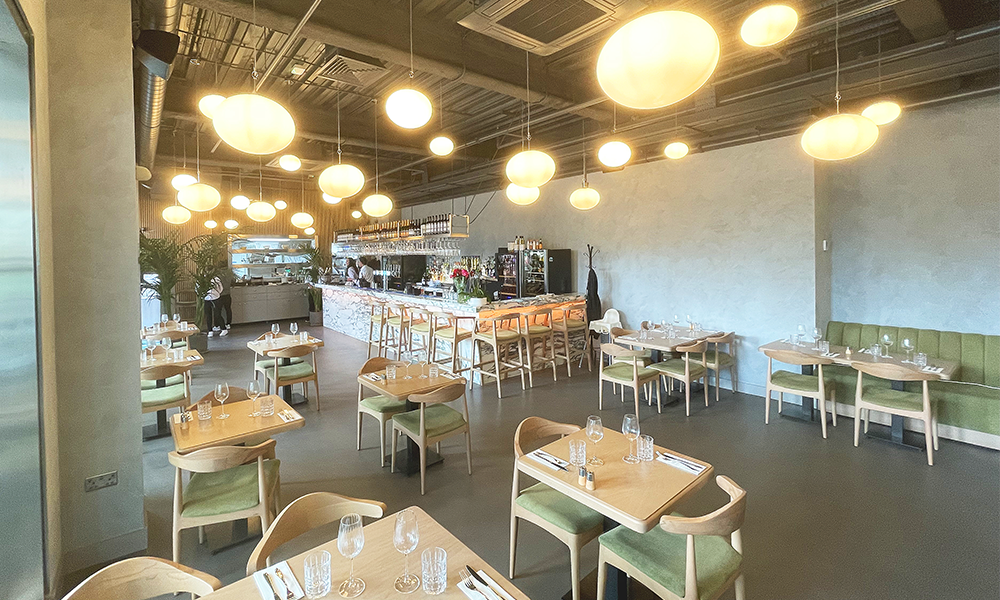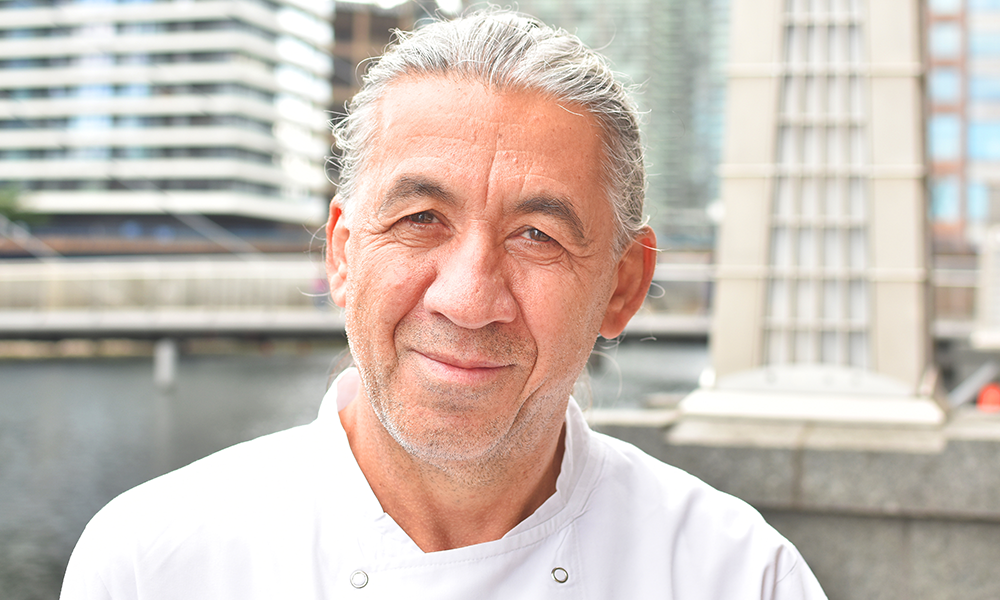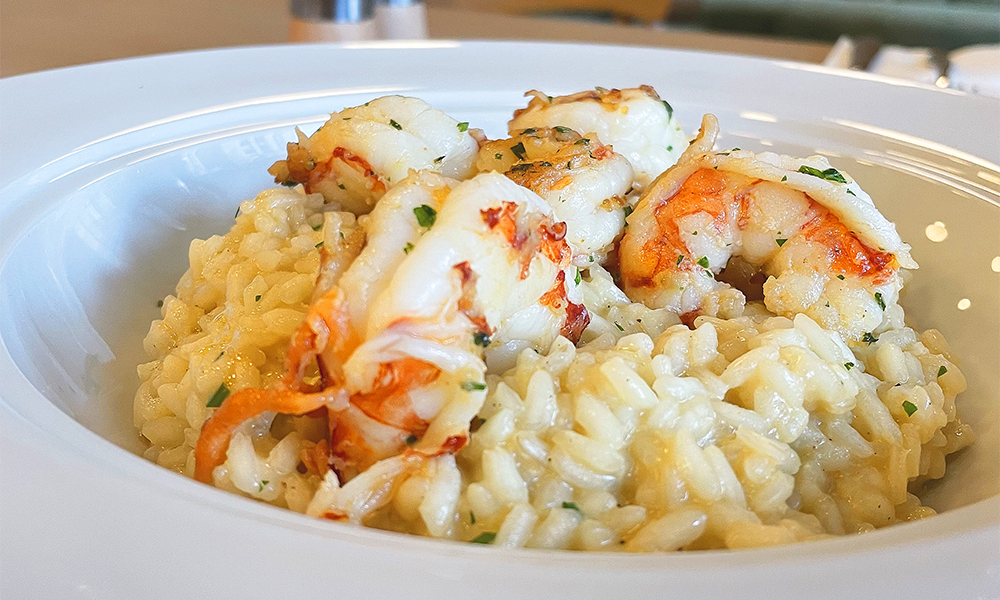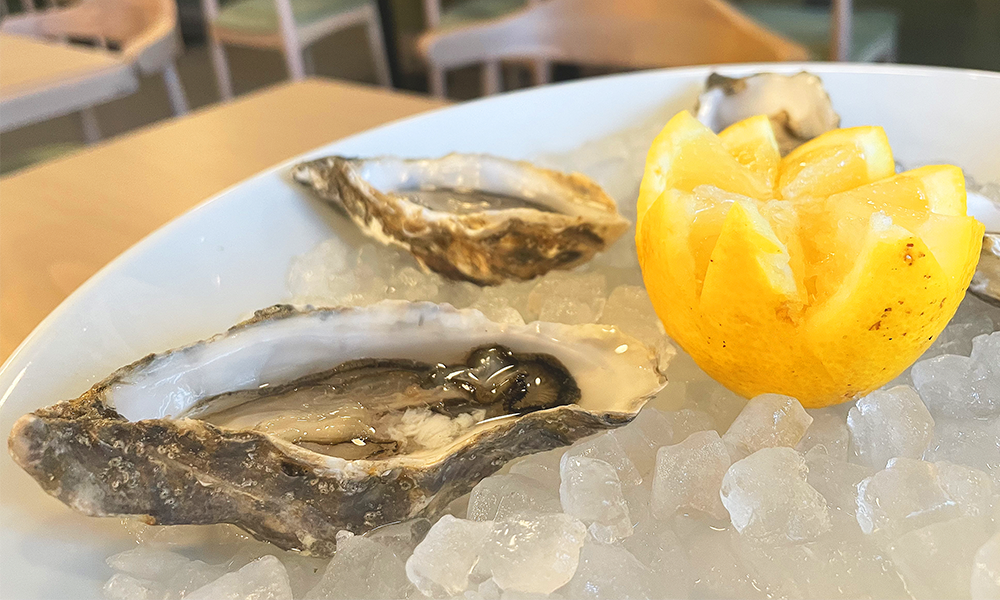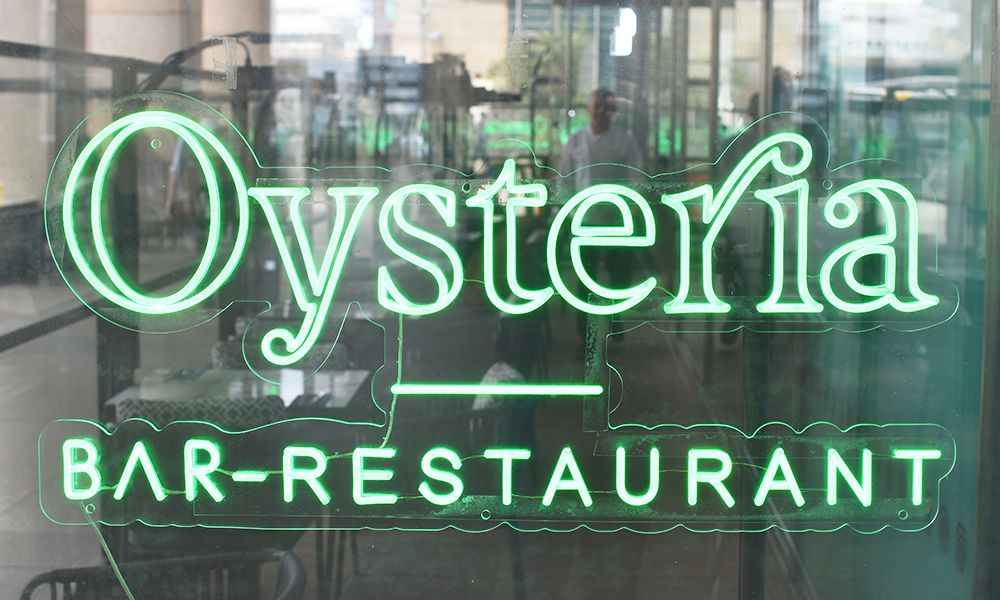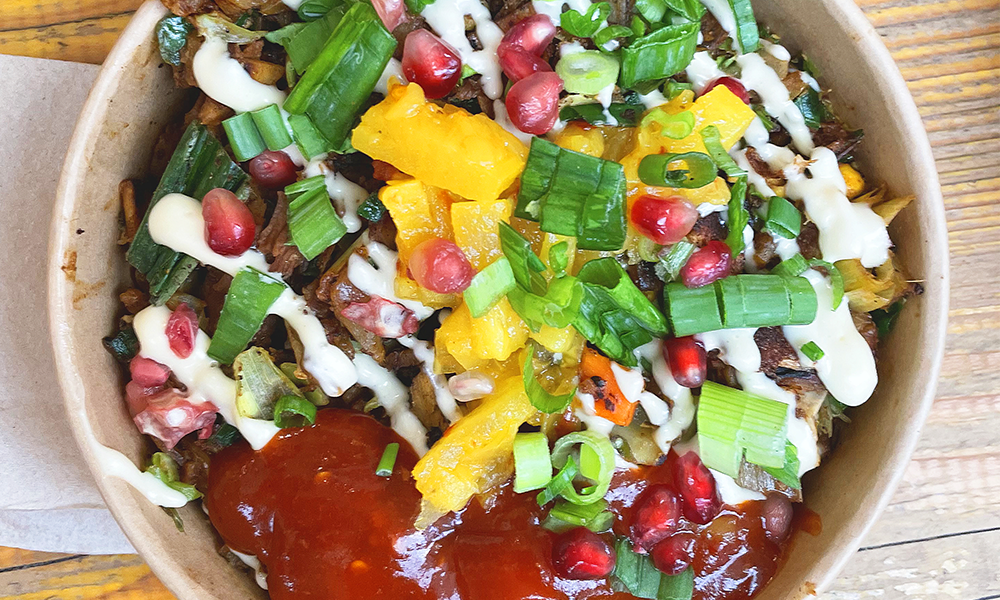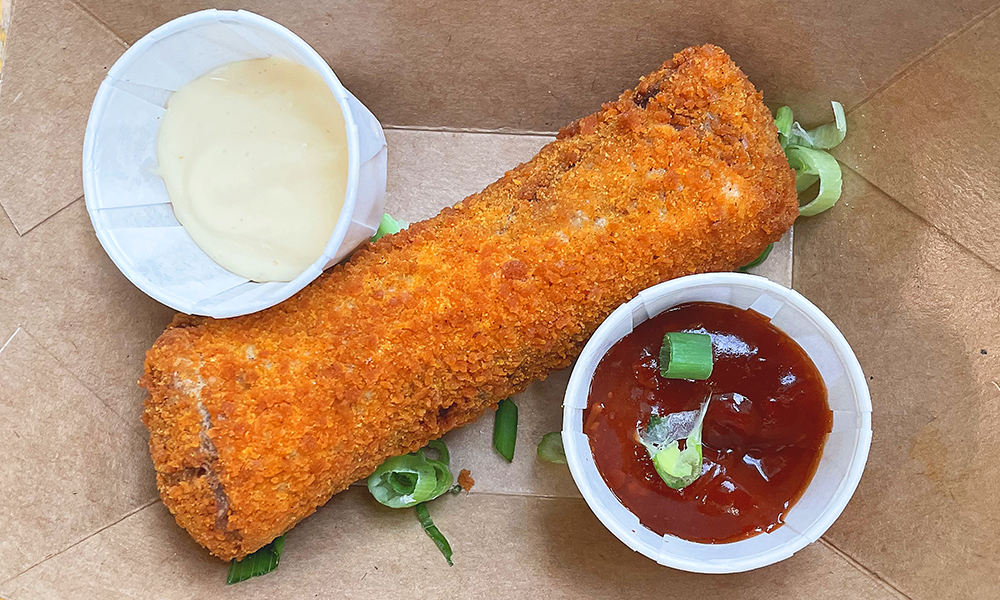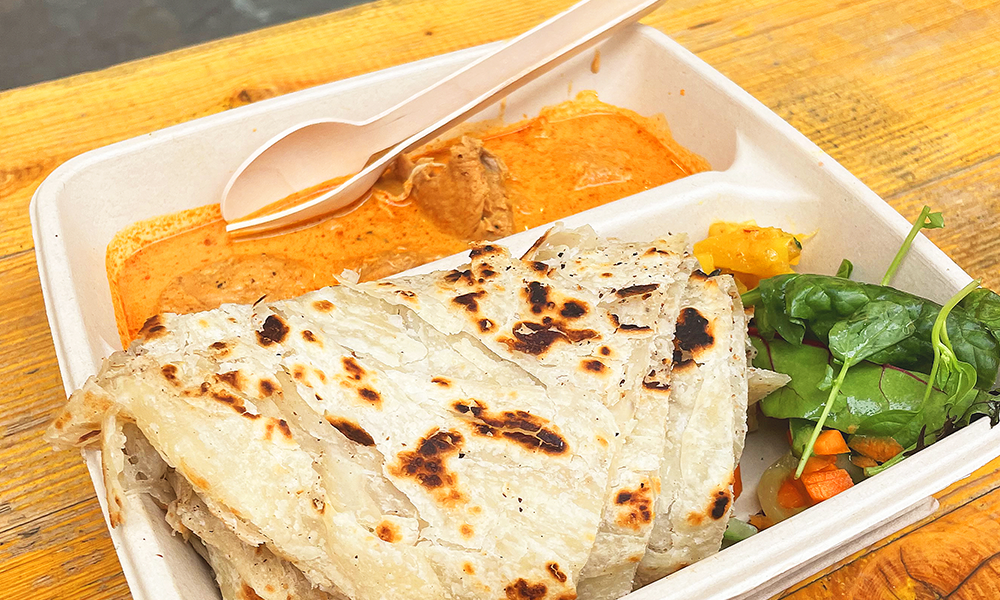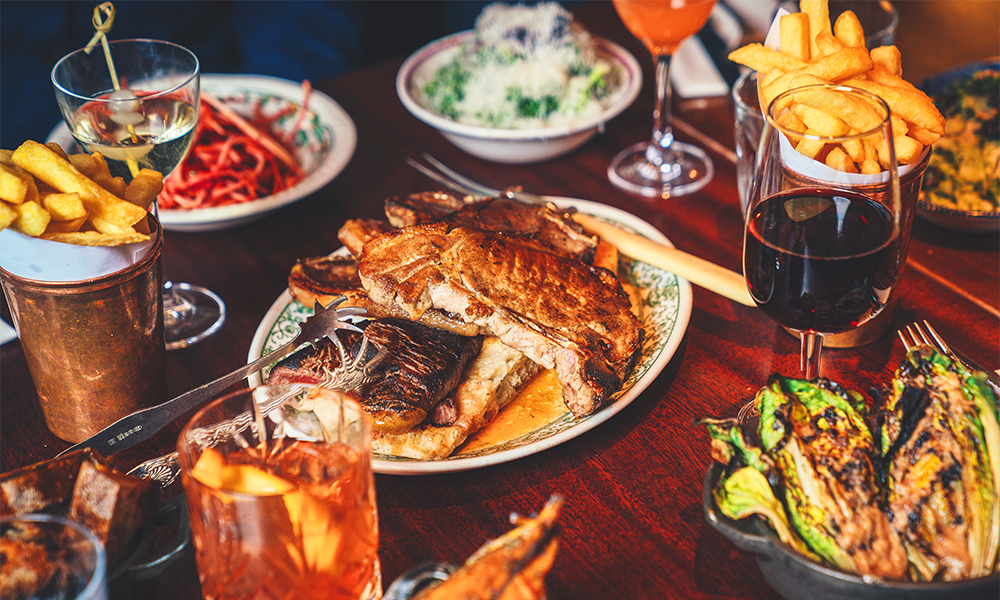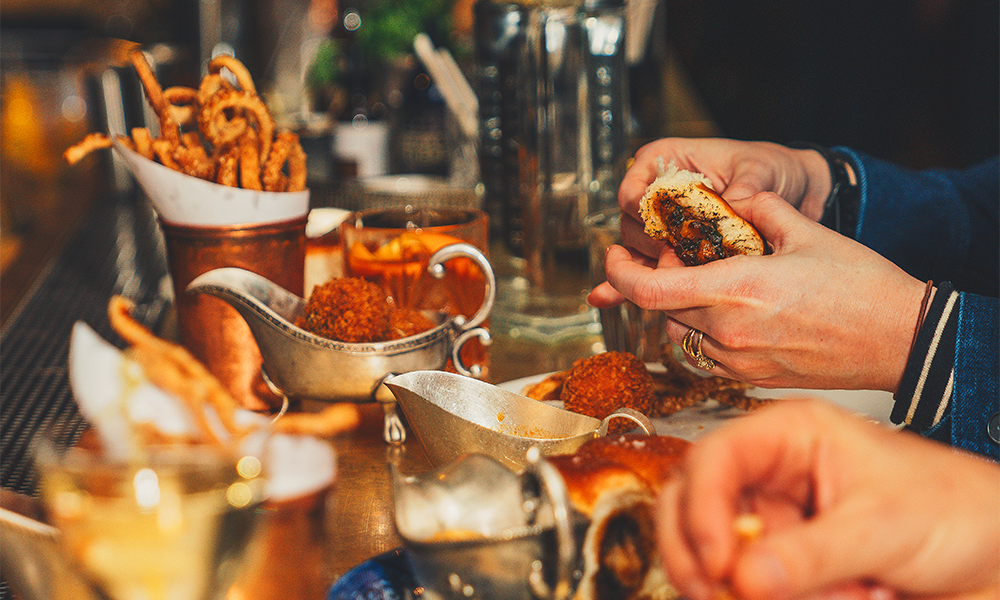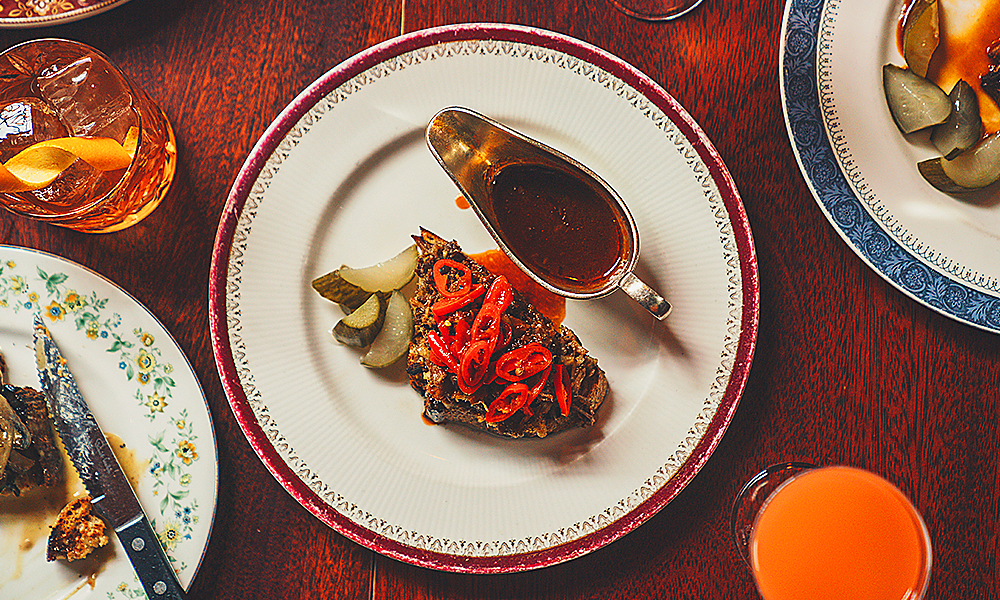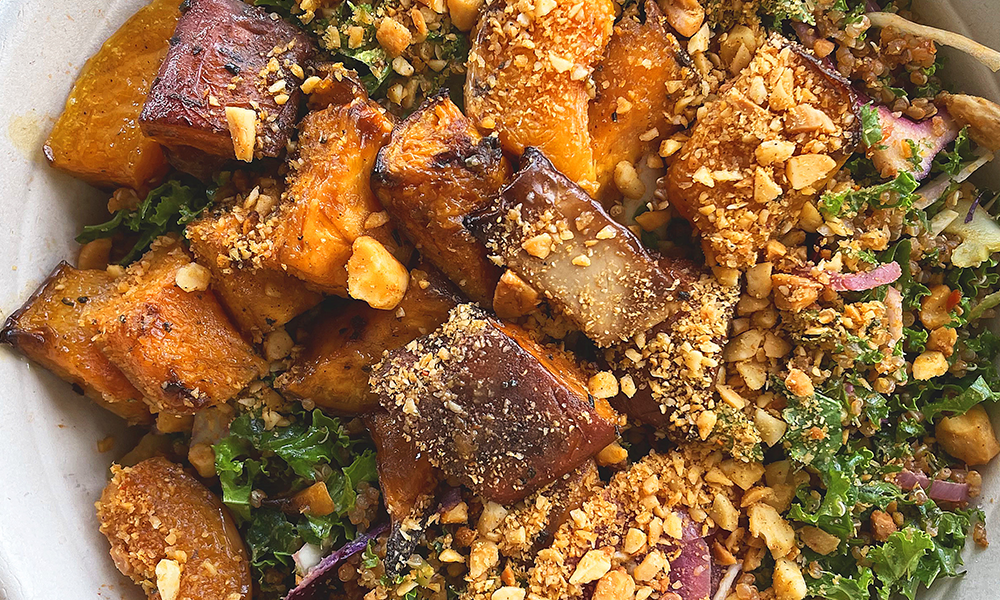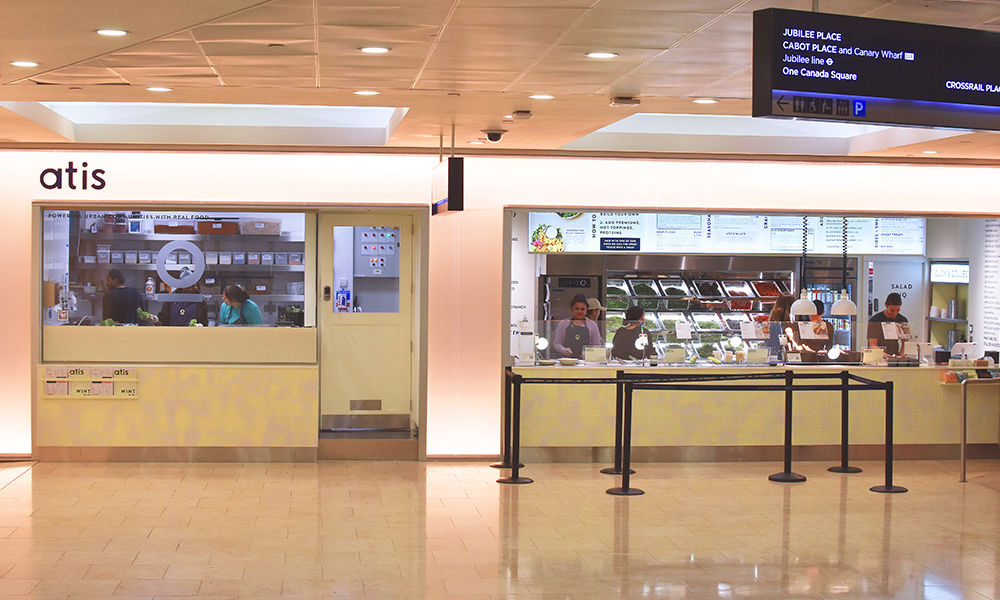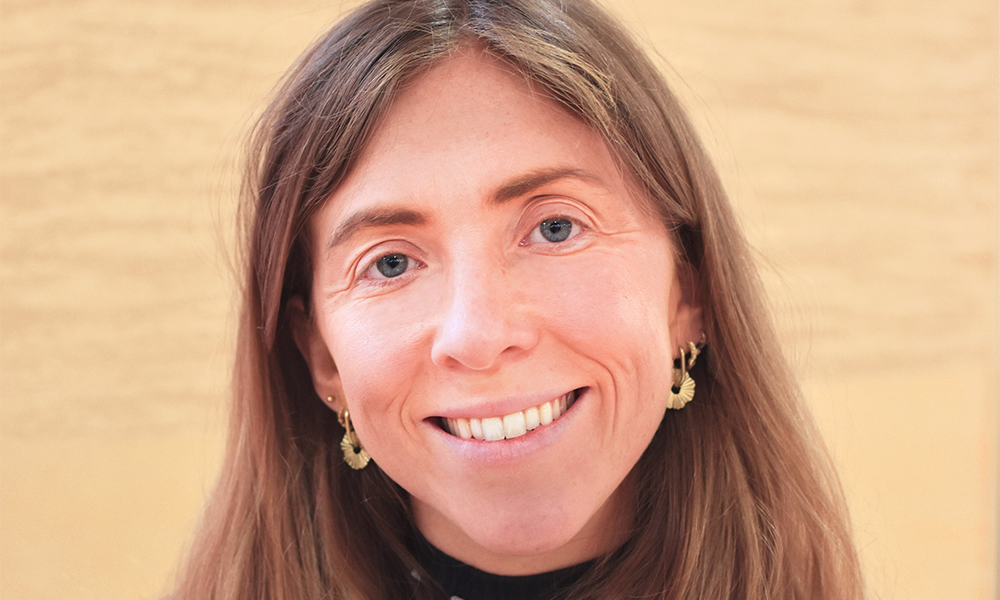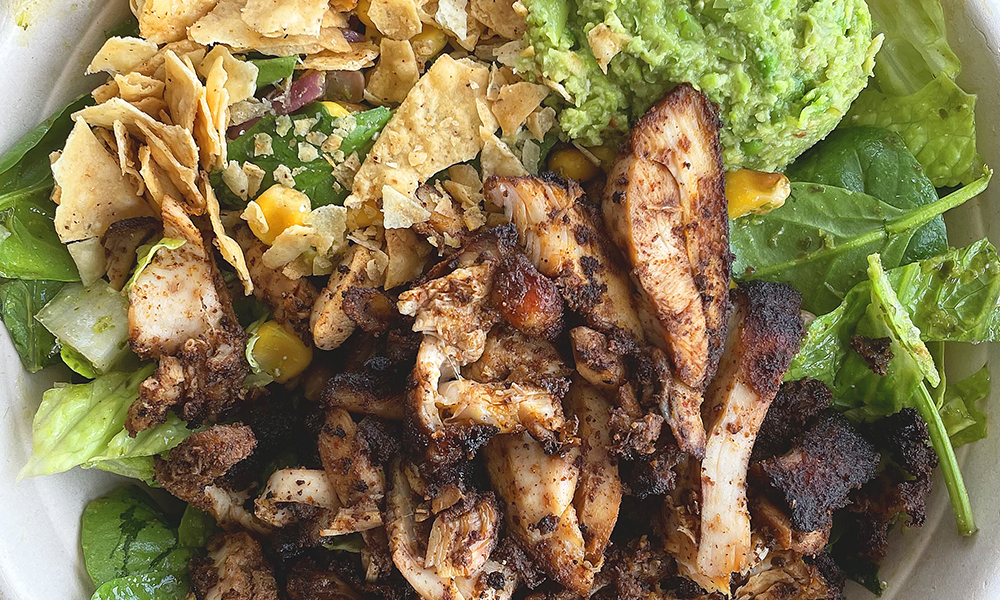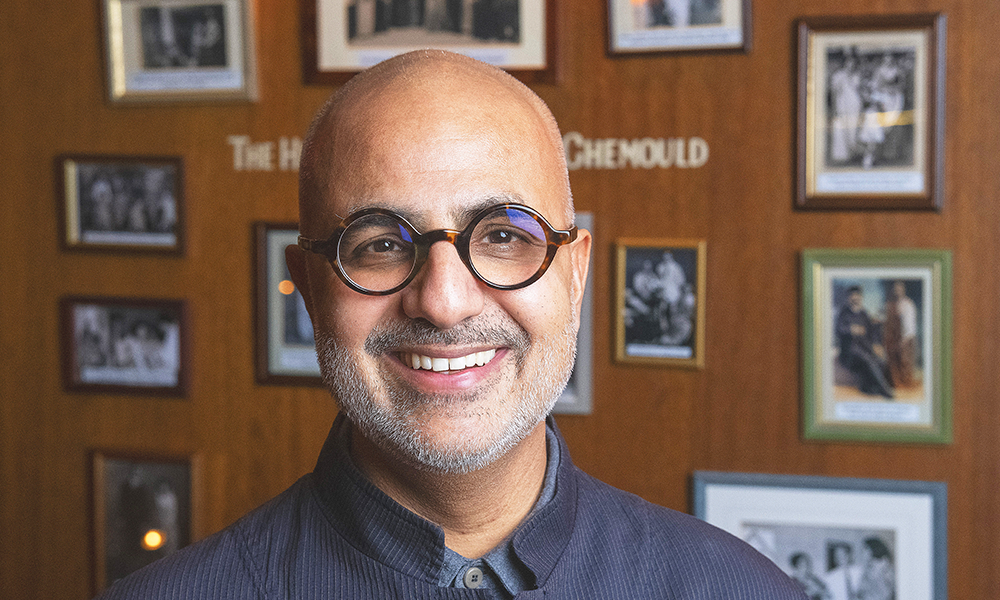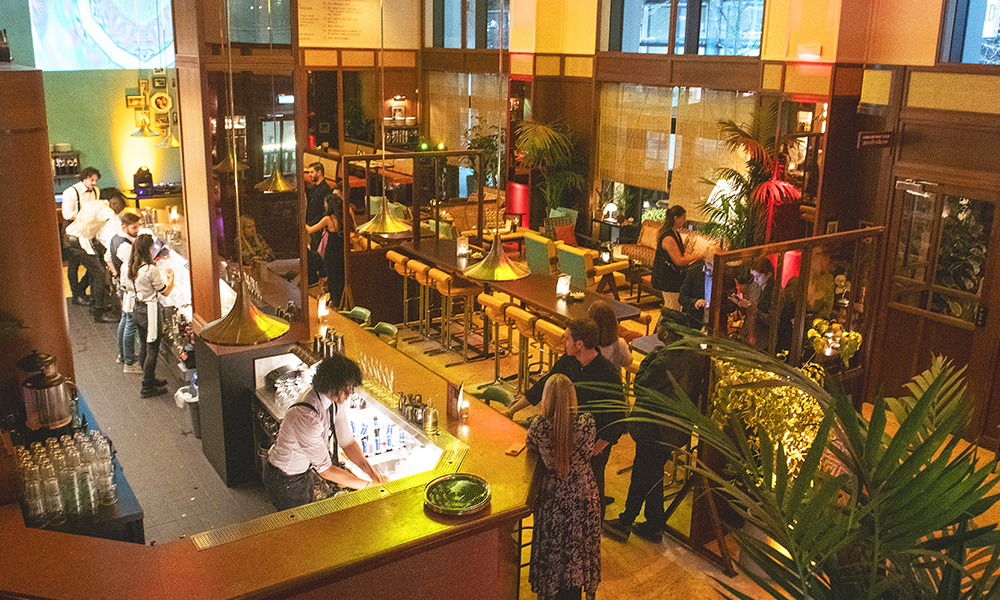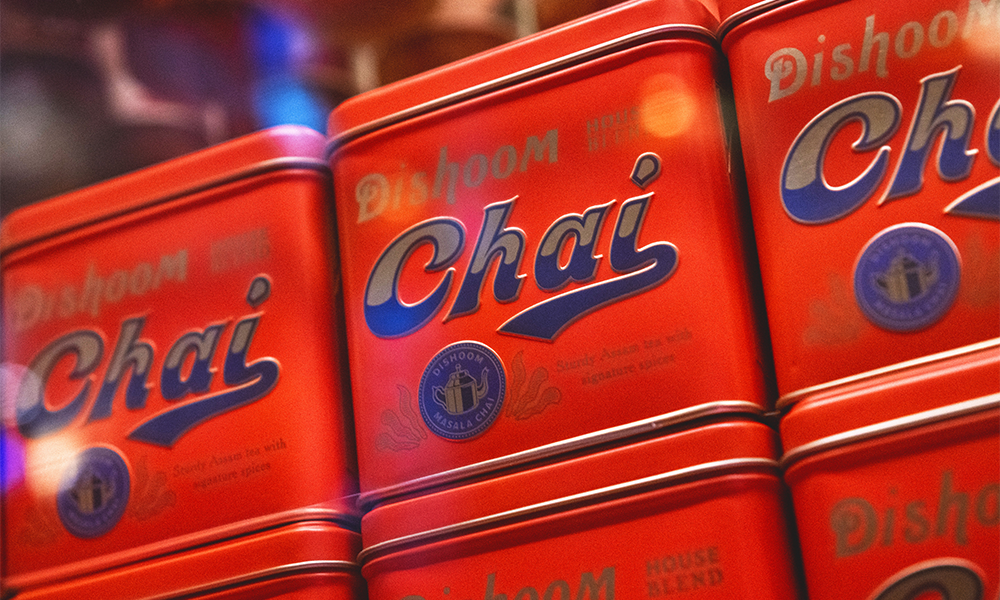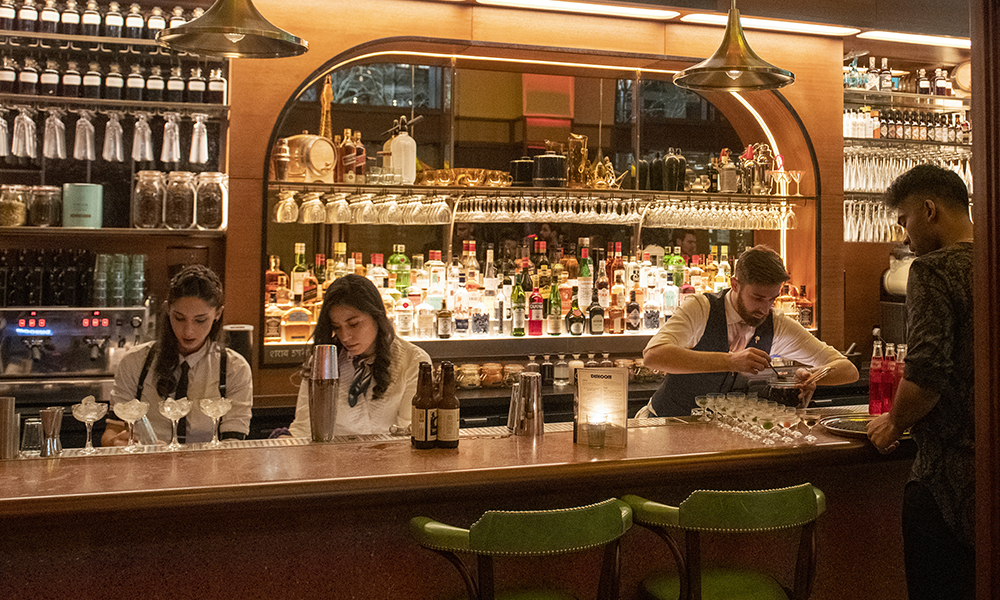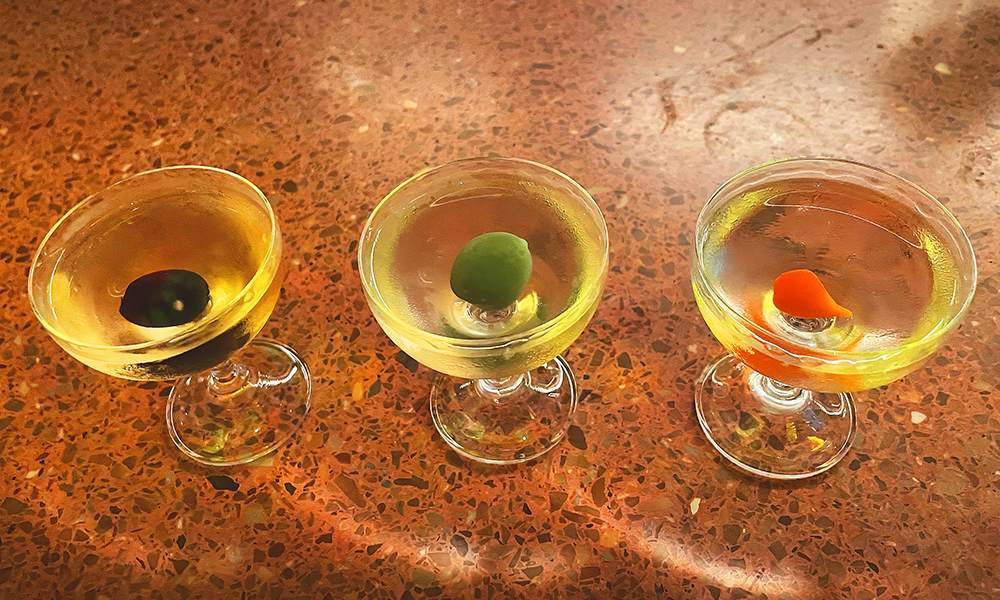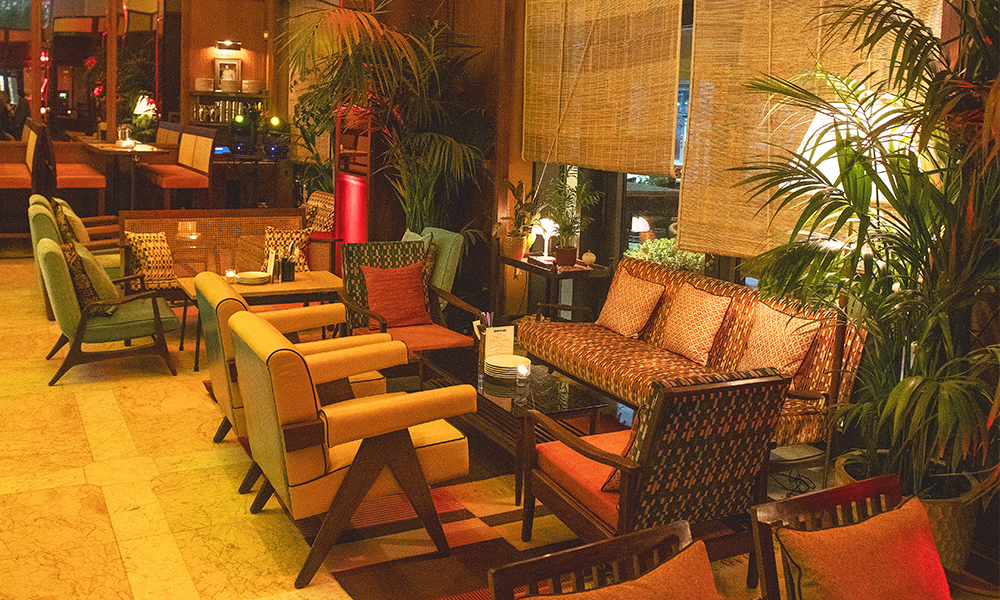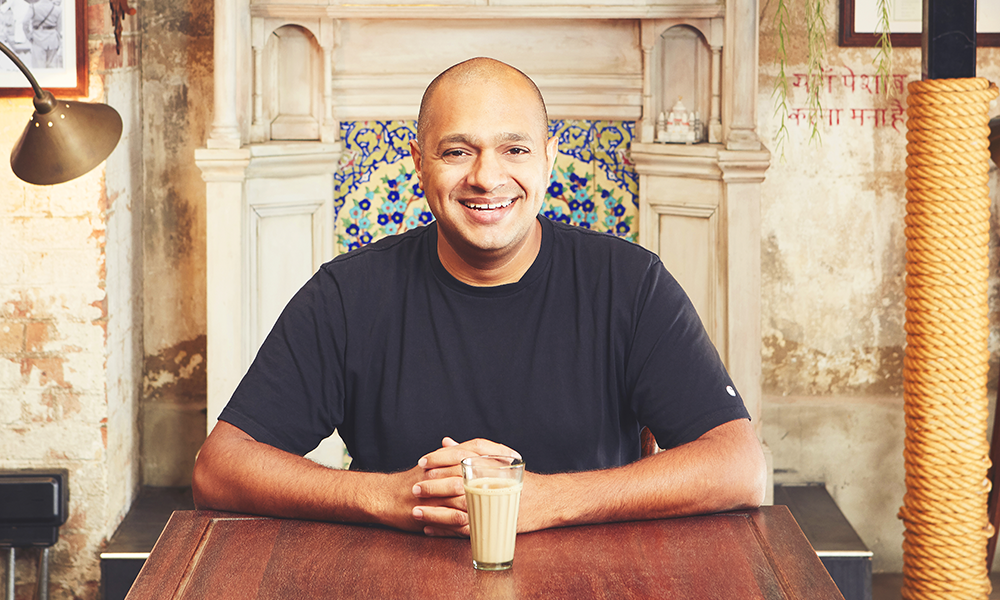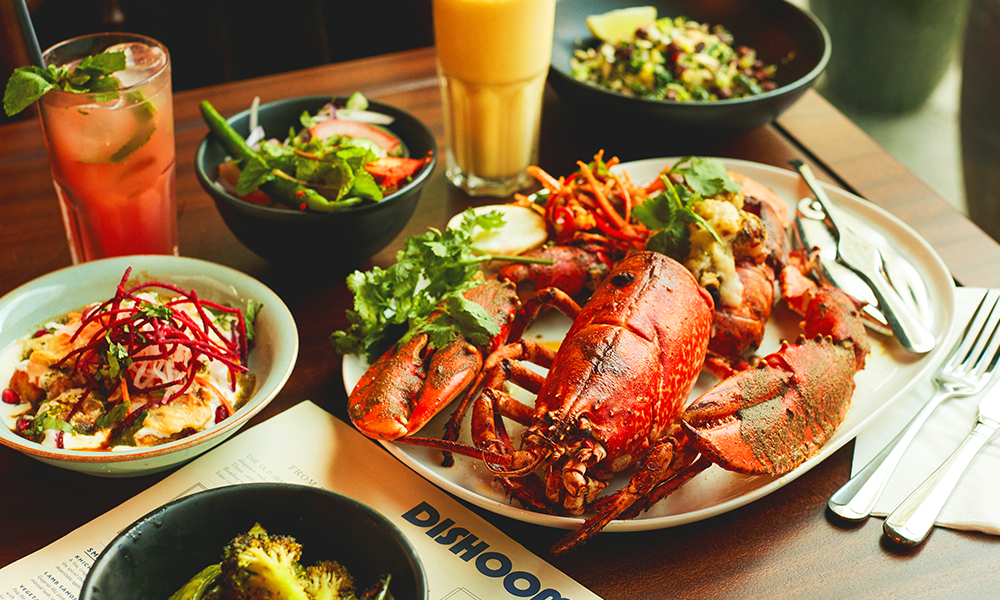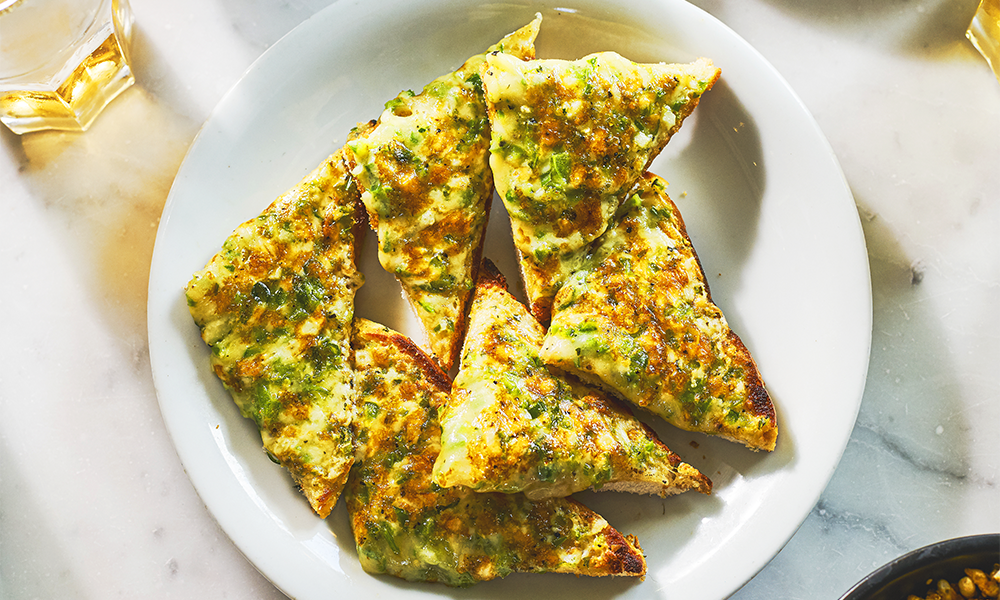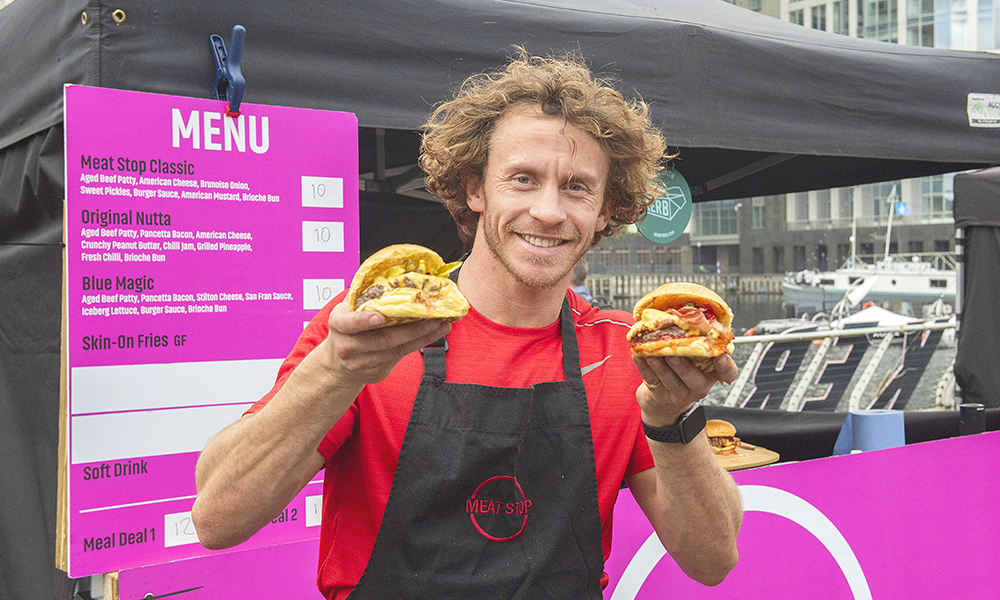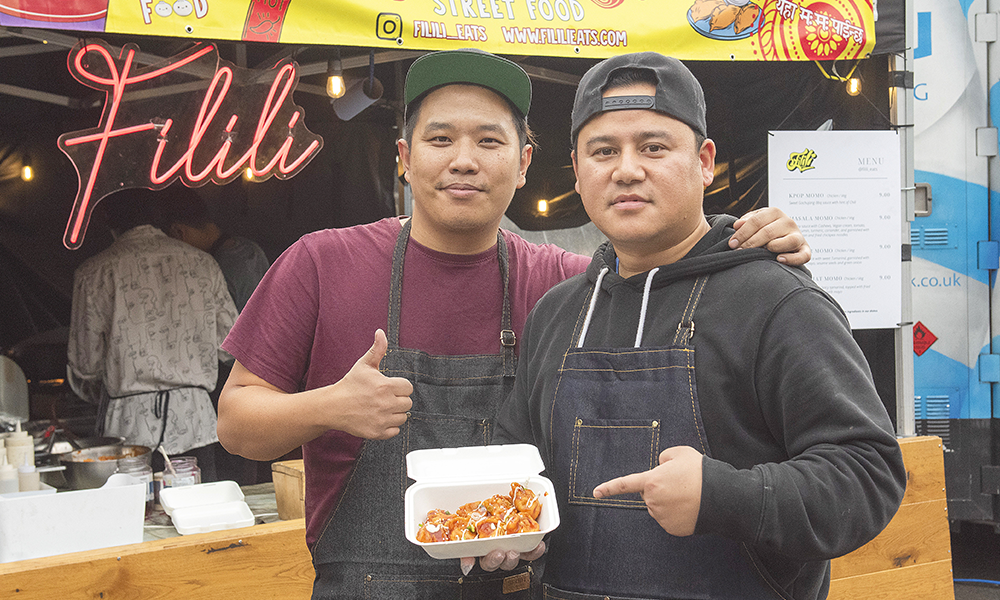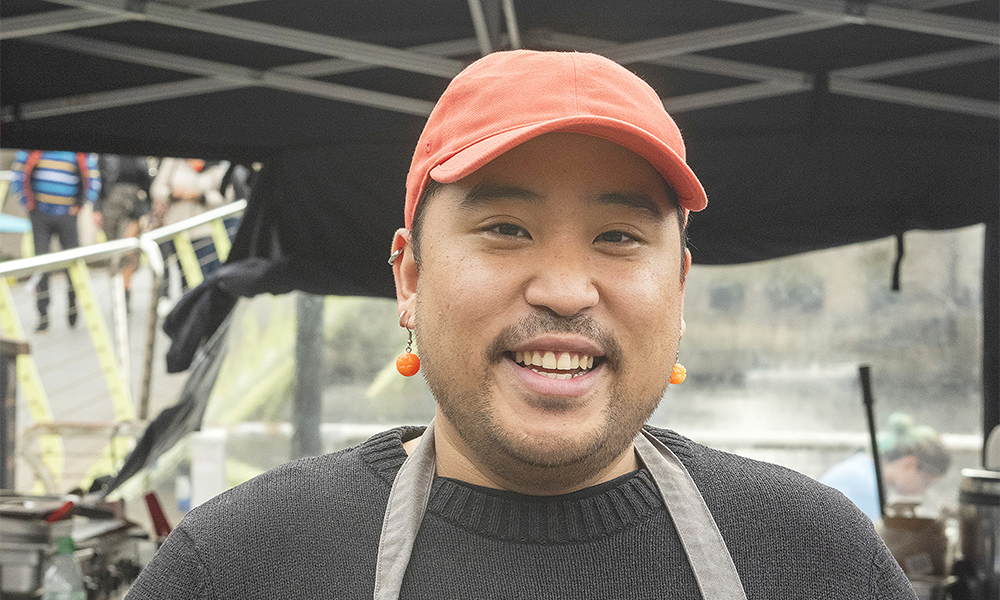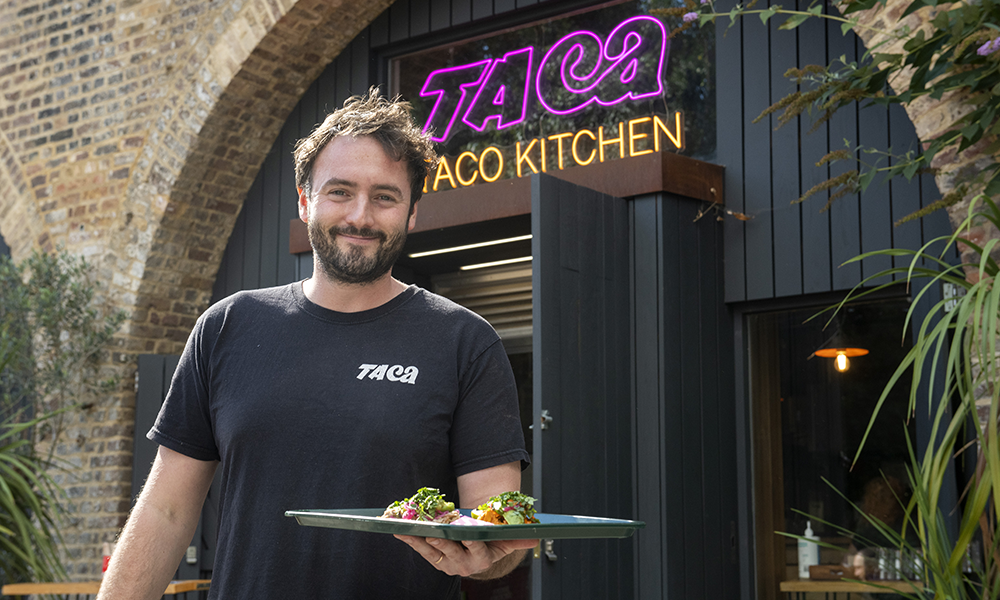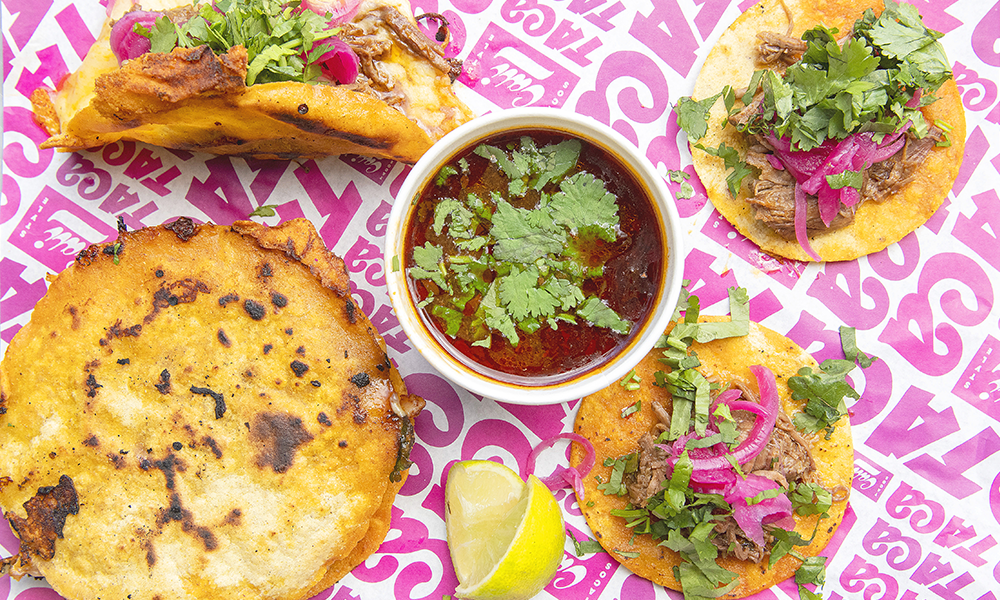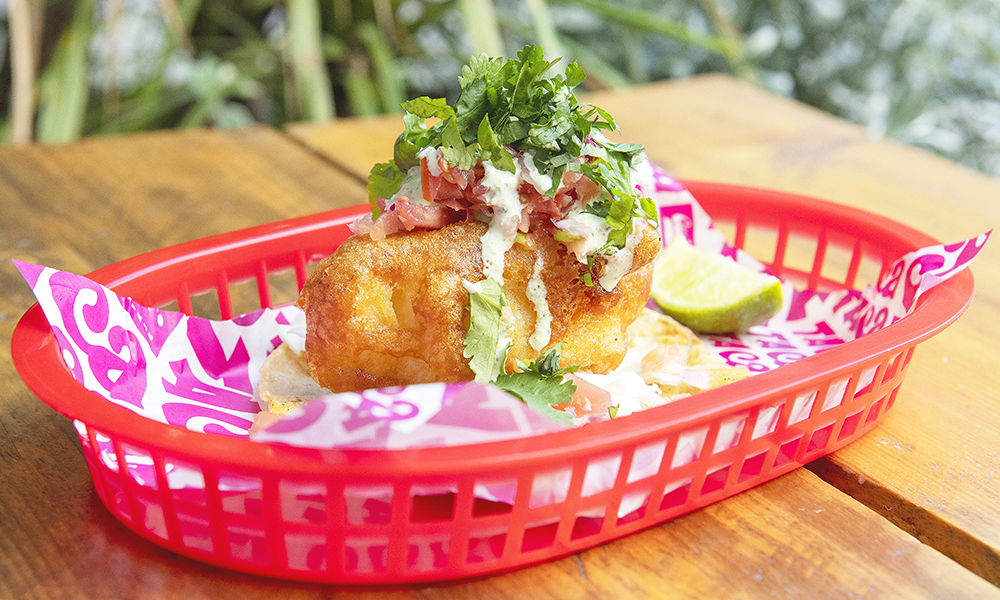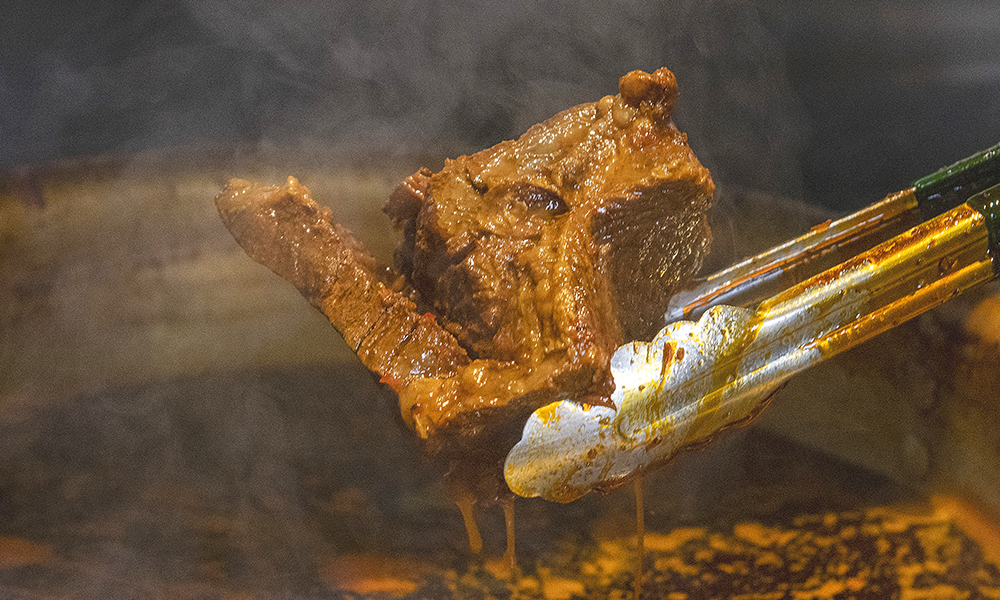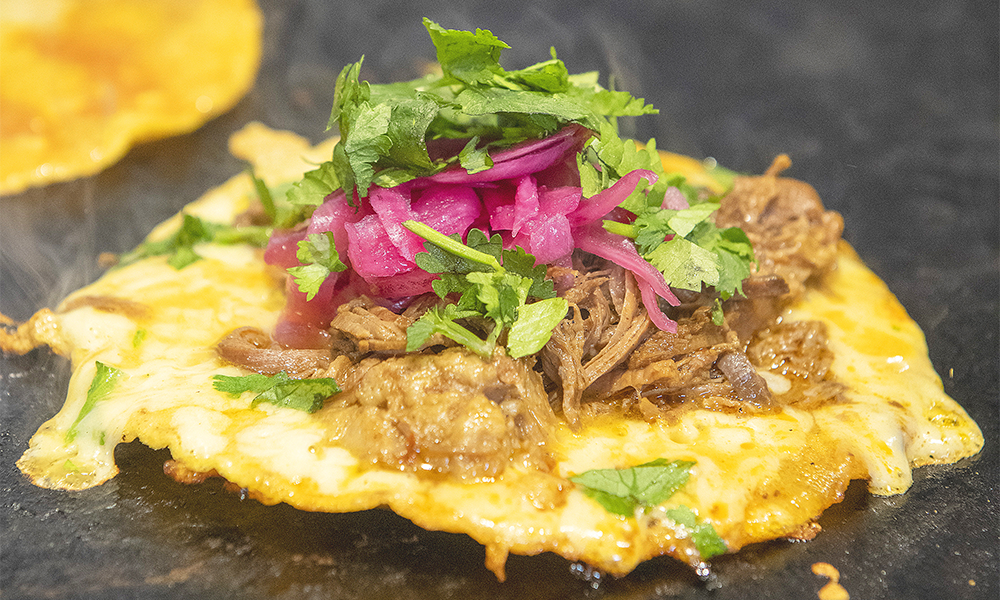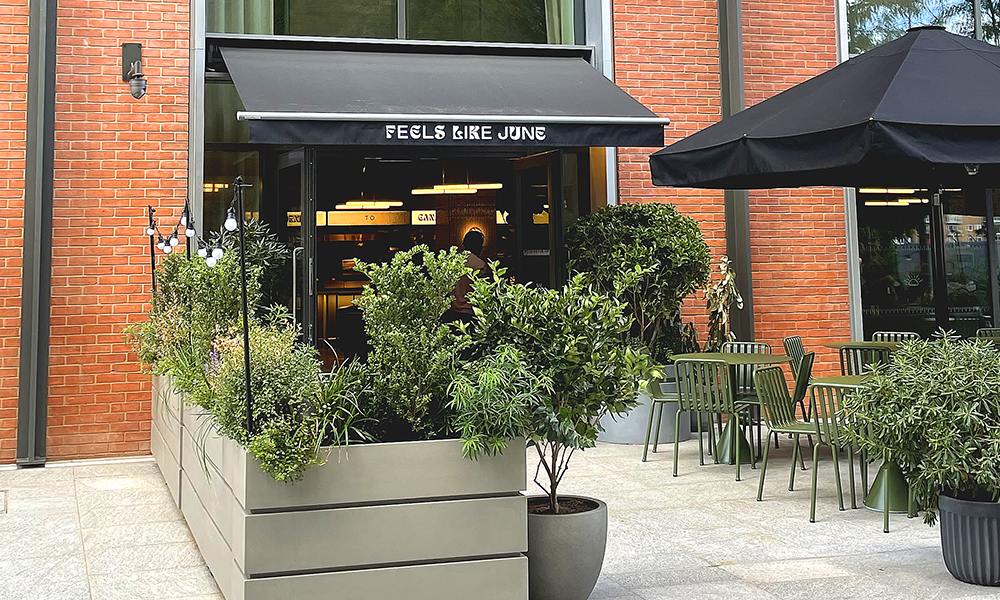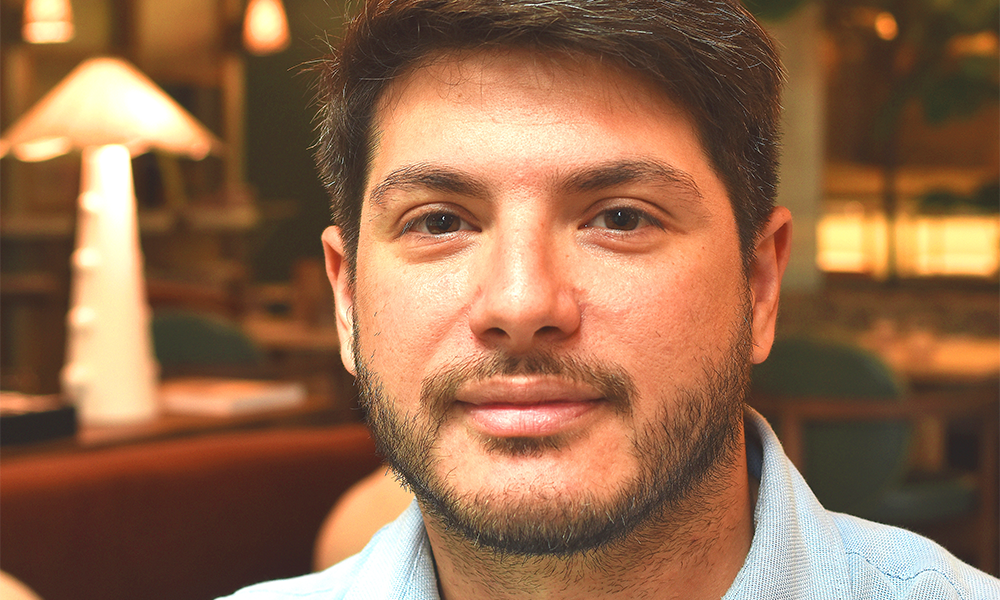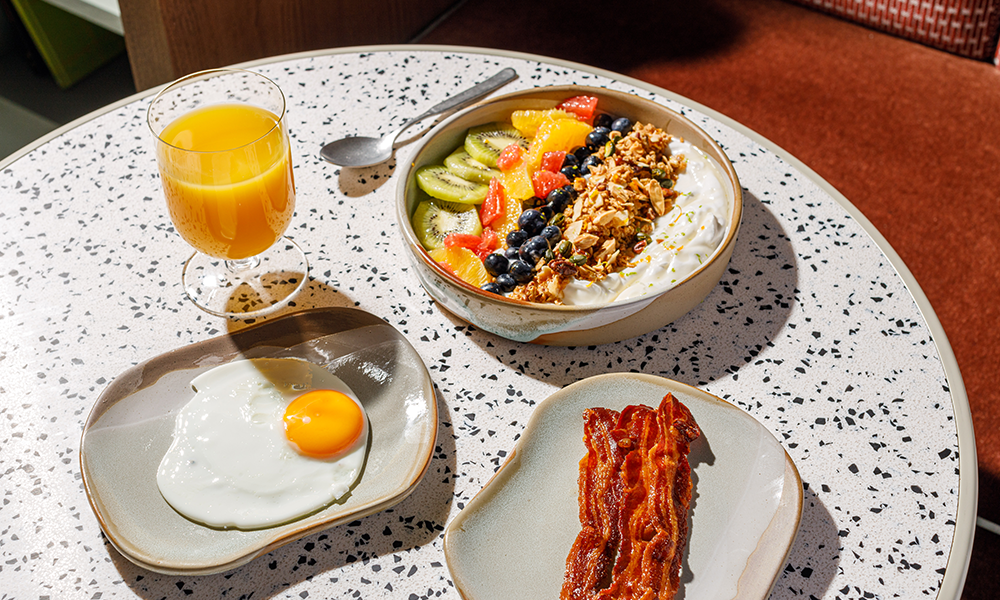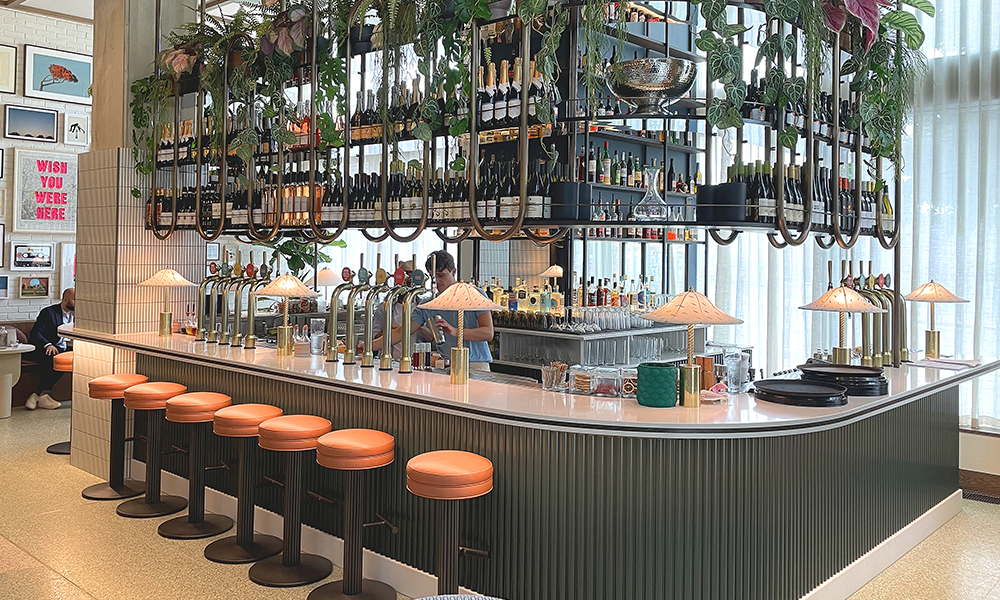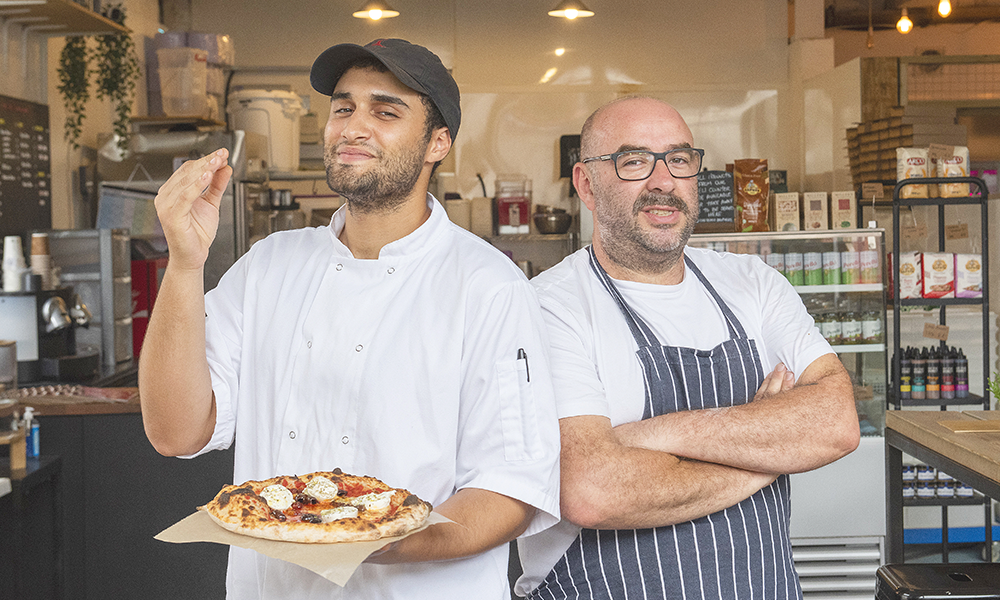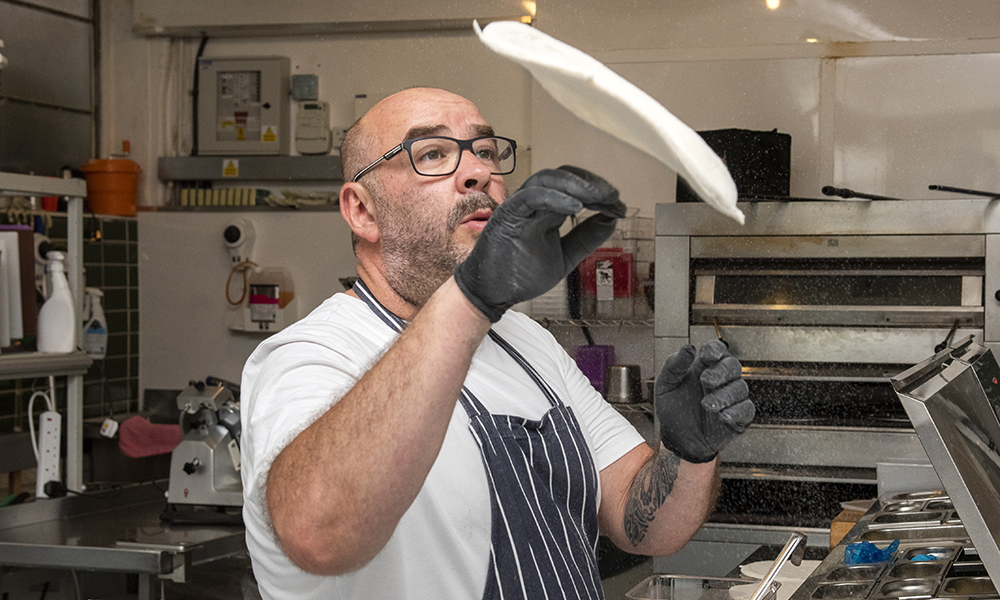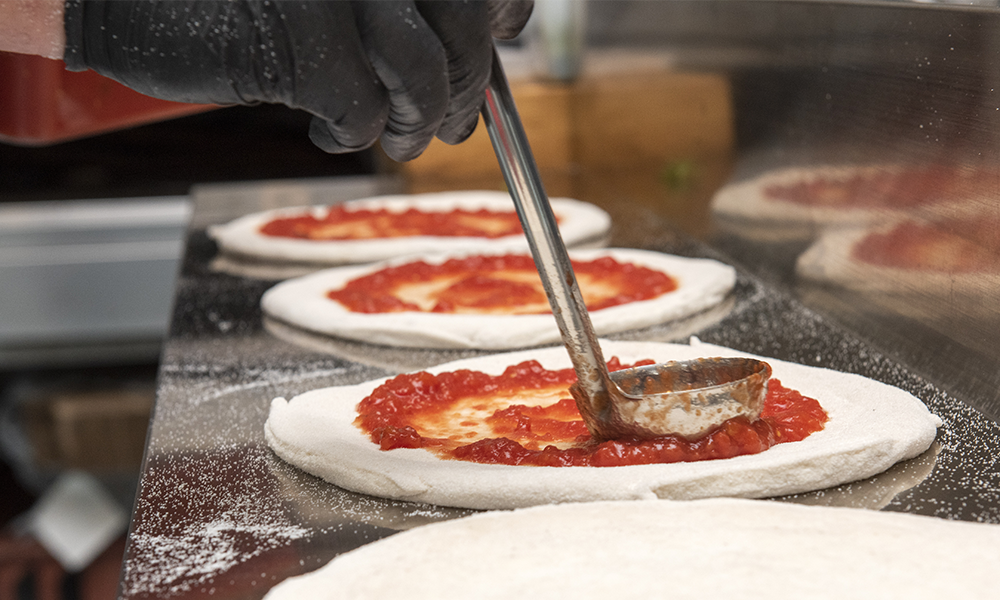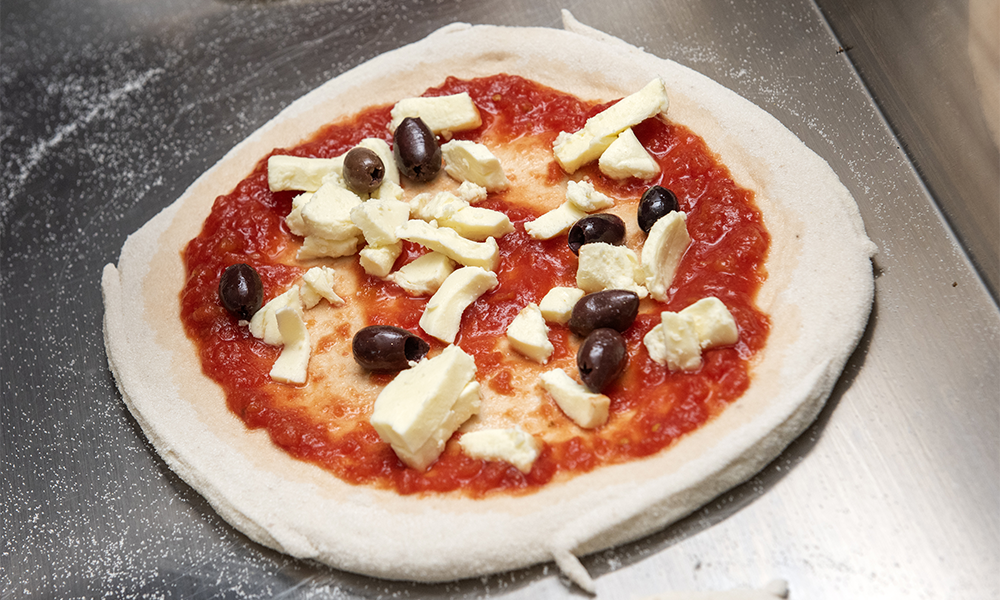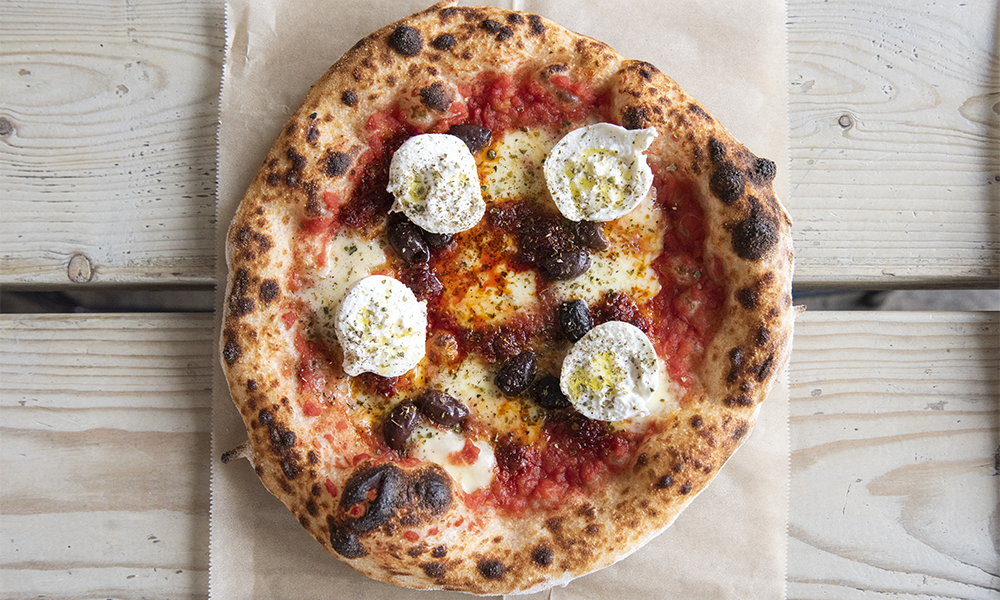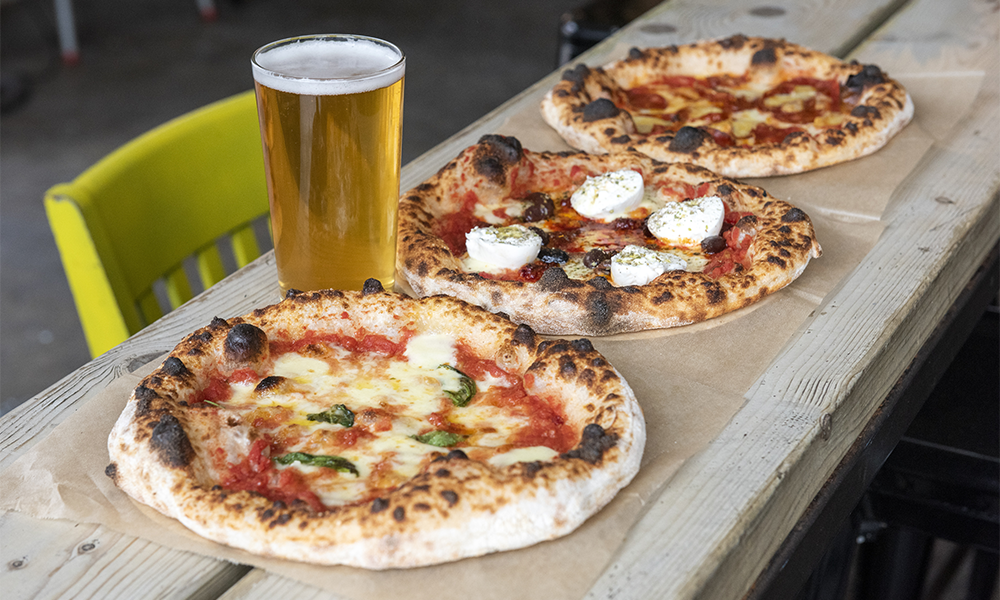Marking Canary Wharf Group’s Season Of Culinary Discovery, Wharf Life has tried dishes from Asia and America, all available on the east London estate
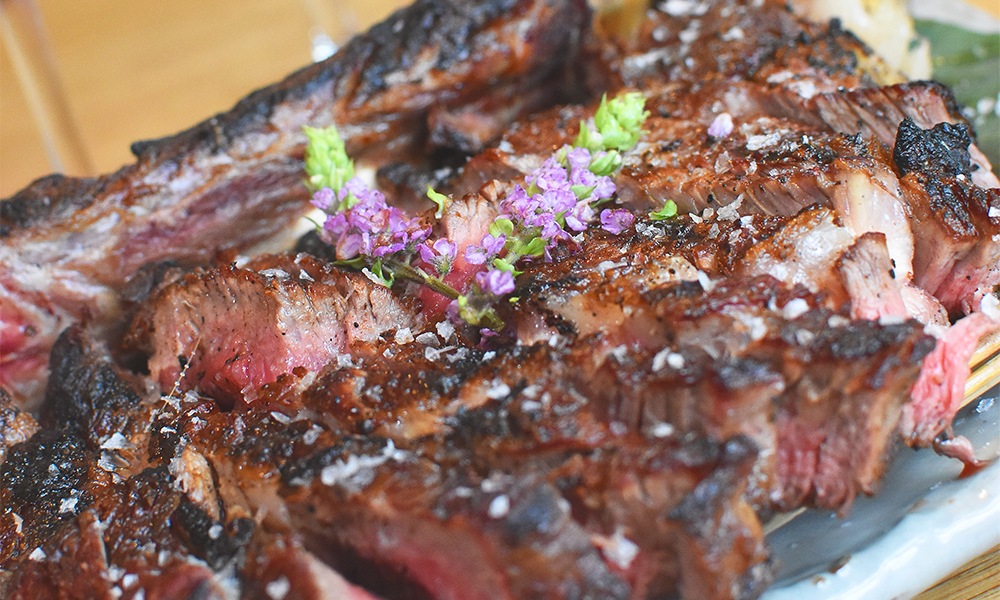
Subscribe to our free Wharf Whispers newsletter here
Canary Wharf’s food scene is unquestionably the best it’s ever been.
Gone are the days of underwhelming Pizza Express lunches.
The estate in 2023 is host to myriad dining options spanning cuisines from across the globe.
In celebration, Canary Wharf Group (CWG) has unveiled its Season Of Culinary Discovery campaign, aimed at shining a spotlight on venues all over the estate at a time of year when – more than any other – people want to get together, break bread and celebrate.
It’s an open invitation to explore, taste, experiment and discover new flavours and venues – something Wharf Life is proud to get involved with.
“The reason we’re doing this is to reflect the diversity of the restaurants and cuisines we have on the estate,” said Claire Slater, retail marketing manager at CWG.
“ We wanted to show how people can sample flavours from across the world without ever having to leave the Wharf.
“I don’t think anyone would expect the sheer number of phenomenal restaurants that we have here.
“Until you come and you visit, you won’t be aware of the depth – I think people really are spoilt for choice.
“Also, because it’s a holiday season we wanted to remind people that there’s something for everyone.
“Whether you’re celebrating with a significant other, your family, your work colleagues or a group of friends, there’s somewhere that caters for every taste and every kind of occasion.”
To that end, CWG is showcasing restaurants on the estate in four categories – When East Meets East, North, South Or Central, Frosty Days And Sizzling Dishes and From Farm To Fork.
In support we’ve selected dishes from restaurants featured in the above categories to help spark your dining ideas.
Find our more about the Season Of Culinary Discovery here
FROSTY DAYS AND SIZZLING DISHES
The first strand of the campaign celebrates European restaurants with a healthy focus on Italian cuisine…
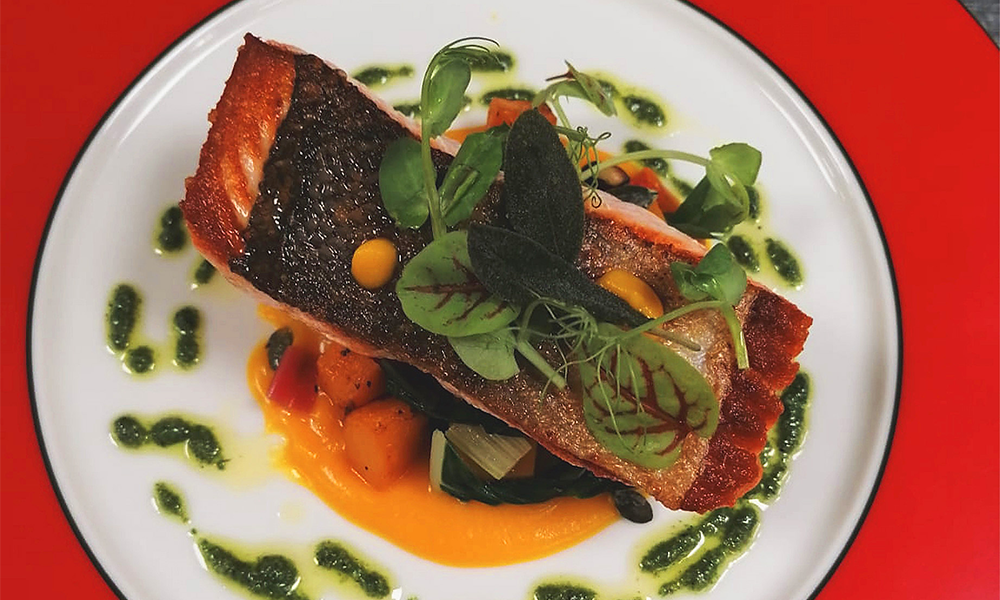
Roast Fillet Of Sea Trout, £28
Cabot Place
Served up with sage and pumpkin seed pesto, butternut squash, chard and cold pressed olive oil, this handsome piece of fish is a fitting crown for one of Boisdale’s oxblood red-bordered plates. The Scottish restaurant, jazz venue, whisky Mecca, cigar library and oyster bar has more than a few strings to its bow – so many, in fact, that it’s easy to overlook the food. This is a place of rich, bold flavours. The fish is often smoked, the haggis soused in liquor and the menu shot through with whisky matches to help ease the dining. This brightly coloured dish is just one of the options on a Christmas set menu that offers three courses for £59.50 and features silky Jerusalem artichoke soup alongside the inevitable festive classics. Just don’t forget a noggin or two as a chaser…

White Chocolate Cheesecake, £6.50
Frobisher Passage (under the DLR)
There’s something of the speakeasy about Blacklock, with its dark wood furniture, leather banquettes and screened windows. While chops and plentiful portions are what this place is known for, don’t visit without trying its classic white chocolate cheesecake, doled out table side in astonishing quantities…
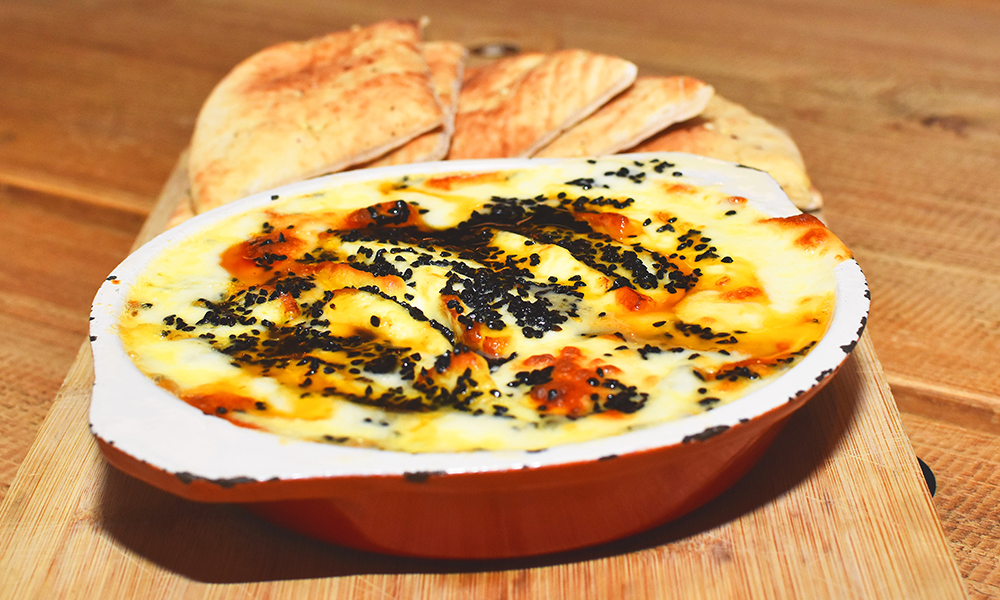
Baked Halloumi Fondue, £11.90
MMy Wood Wharf, Wood Wharf
All of the traders at MMy Wood Wharf must adhere to strict sustainability guidelines that conform to Mercato Metropolitano’s vision for good food that doesn’t harm the planet. This melange of cheeses with flat bread is a great example of how doing the right thing needn’t be a compromise on taste and texture
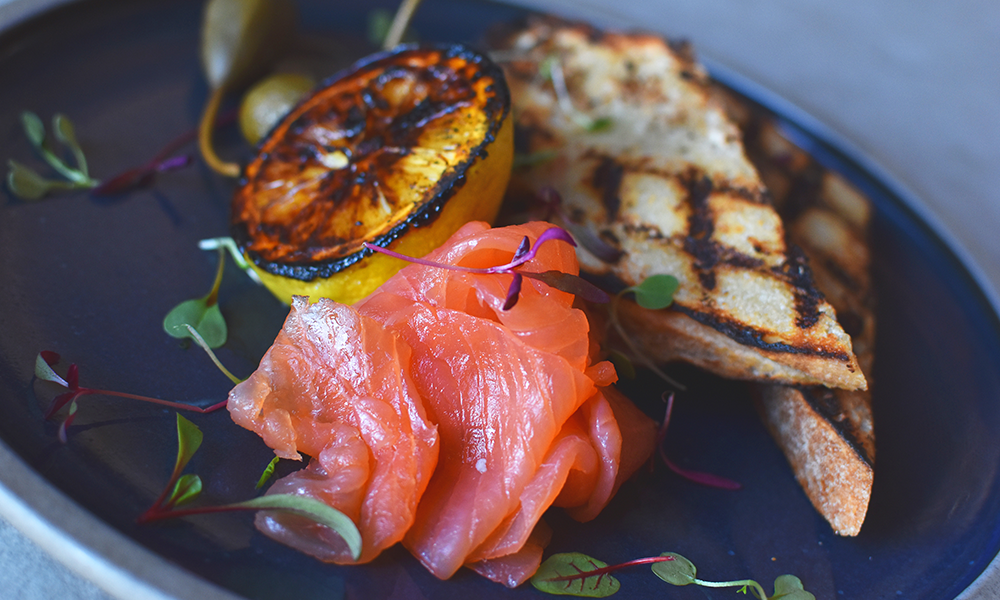
Christmas Feast, from £45
One Canada Square
Pedler has come up with some of our favourite things for its seasonal offering this year. Its menus start at £45 for two courses, £55 for three with bubbles, coffee and mince pies or £65 to add 1/2 a bottle of wine per guest. Tipsy or not, there are some serious flavours at play here to enjoy. Our picks are St Ives Smoked Salmon to start with sourdough and capers, followed by a zingy Beetroot Tarte tatin for mains with feta, rocket and tomato salsa. Then to finish, it has to be the Bailey’s And Vanilla Creme Brulee, topped off with icing sugar-dusted raspberries. Expect a warm welcome throughout the colder months..
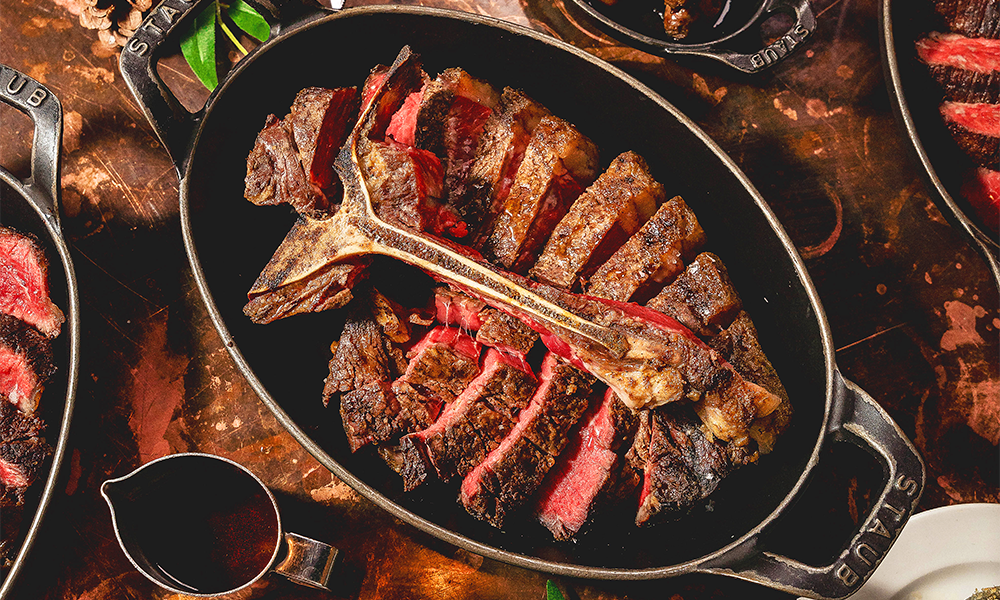
Steaks, from £62 (part of set menu)
Water Street
A festive experience at Hawksmoor is really all about the beef and the company. The Water Street restaurant boasts a private dining room where revellers can indulge in sirloin, rump, prime rib, T-bone, porterhouse and chateaubriand across a selection of two or three-course set menus ranging from £62 to £98. The floating venue (complete with The Lowback bar beneath) may feature an opulent art deco interior, but at heart is about the simplicity of presenting high quality meat to the very best effect. Oh, and don’t forget to round things off with the sticky toffee pudding and clotted cream, it’s ace.
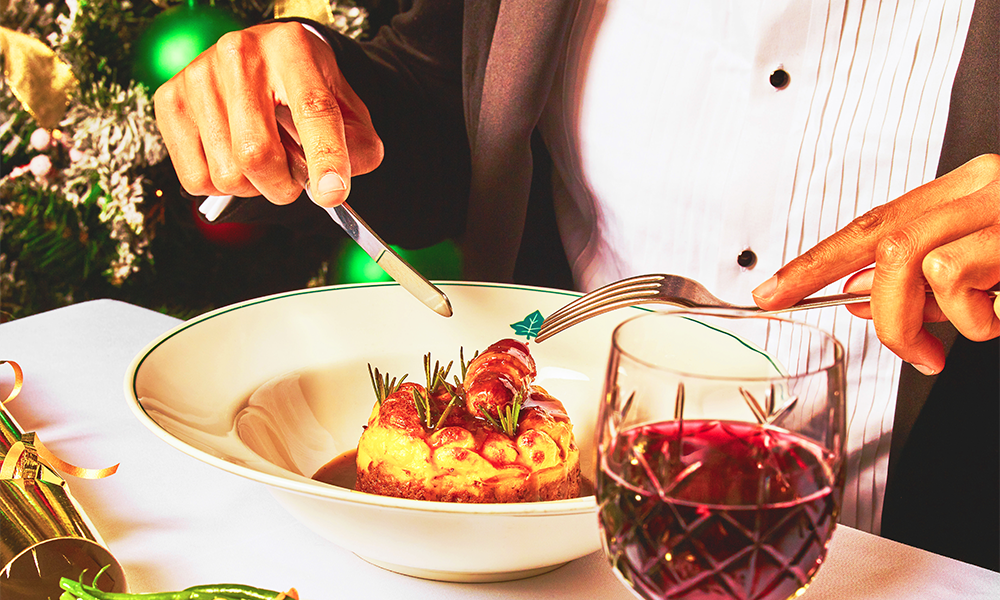
Goose And Turkey Shepherd’s Pie, £55 (part of set menu)
Canada Square
Part of The Ivy In The Park’s seasonal set menu, this dish suggests the shepherd may have decided to branch out from their traditional diet in favour of more extravagant produce to celebrate Christmas. Eschewing lamb in favour of confit goose and turkey as a filling, the mash-topped pie comes served in a high-sided dish complete with pigs in blankets. Suffice to say, the swineherd and poulterers may well be livid. Fortunately, The Ivy has plenty of foliage behind which to hide and remains one of the most beautifully kitted out interiors on the Wharf. Not a bad place to lie low at all.
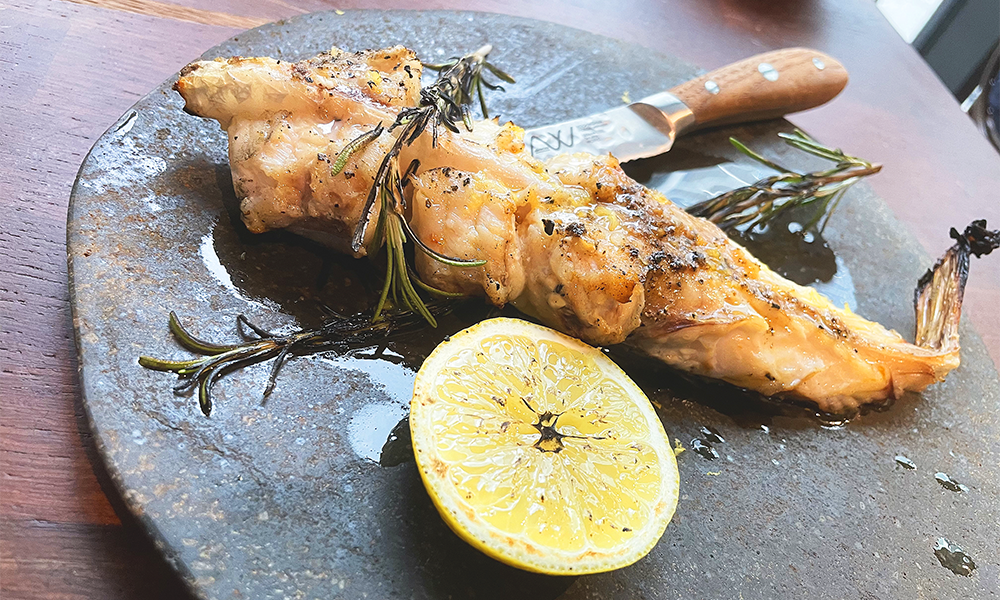
Cornish Monkfish, £29
Water Street
Right on the cutting edge of Canary Wharf’s food scene, Matt Colk’s seafood and game-dominated menu presents fiery cooking and vibrant combinations of British ingredients. The cooking is precise and skilled, typified by this simple dish that marries meaty, succulent fish with rosemary, lemon and smoked Maldon sea salt. It even comes with a big knife to slice up the surprisingly delicate fillet. This is a venue that’s not afraid to try new things and comes complete with a chilli tasting menu and an agave bar packed with South American spirits. Go for the £16, two-course lunch menu, just to start the addiction off gently…
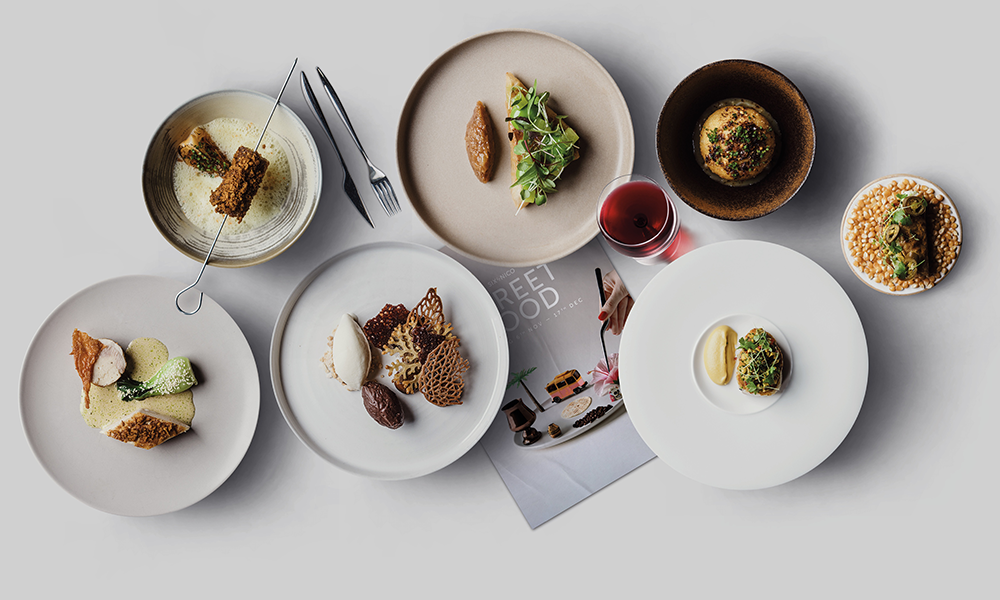
Street Food, £48 (plus £35pp for the matching wines)
Chancellor Passage
Trying to feature a specific dish at Six By Nico is almost impossible as its menu of six courses changes every six weeks. Currently, the Canary Wharf branch is serving Street Food, a selection of dishes “meticulously crafted to pay homage to a diverse array of global flavours and iconic culinary staples that have originated from local street food vendors”. Diners can expect Gochujang Pork Steamed Bun, Samosa, Kebab, Taco, Satay and Coffee to arrive when visiting before December 17. There’s also the option to go for some snacks (croquettes) and a cocktail aperitif if you wish to go all-in.
FROM FARM TO FORK
The second strand of the campaign celebrates sustainability and British produce, home grown and delivered on the plate
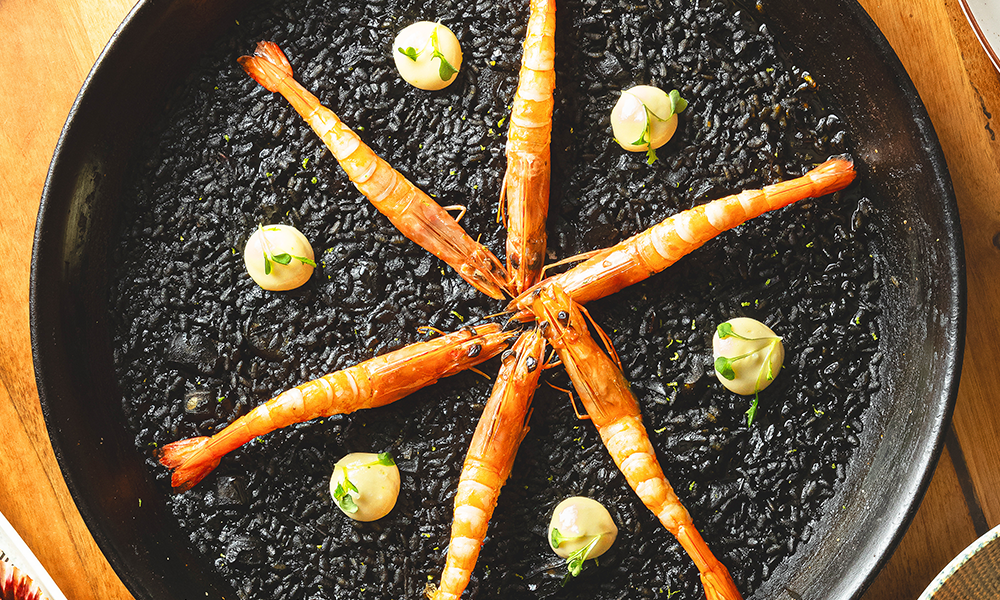
Arroz Negro, £19
North Colonnade
Always a leader, Iberica’s innovative Spanish cooking under chef director Nacho Manzano is a treat. For the festive period, the restaurant is serving up a sharing dish of black ink rice, complete with fresh squid and prawns. Diners can expect a touch of garlic aioli to top off this tapas, served in a paella pan.
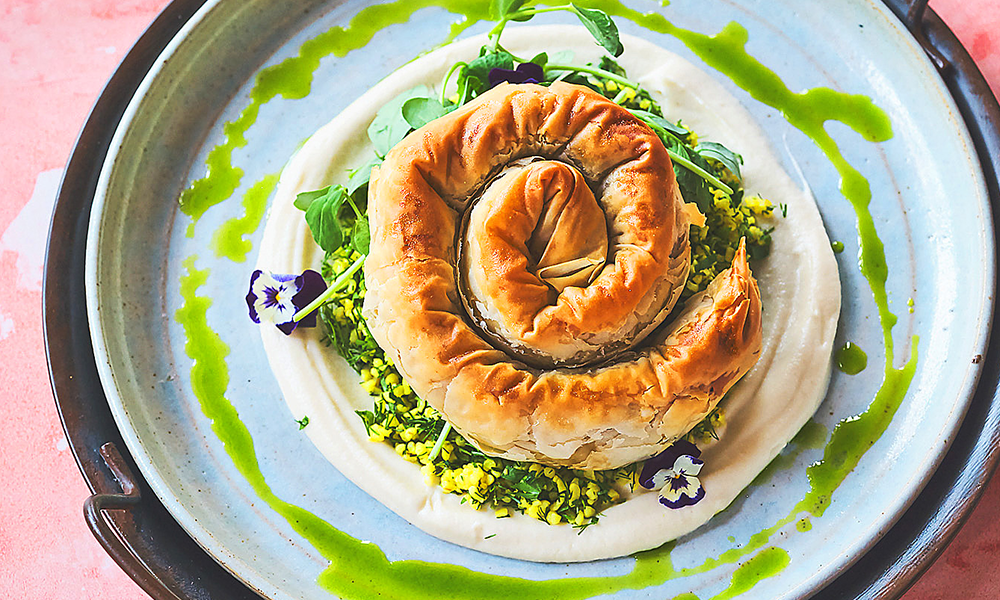
Burnt Aubergine Borek, £19
Water Street
Plant-based powerhouse Mallow consistently serves up some of the most beautiful, complex food on the Wharf and this tight coil of filo pastry is no exception. It comes on a bed of bulgur wheat, muhammara, dates and spices plus green tabbouleh, baba ganoush cream, sour cherry molasses and ezme…
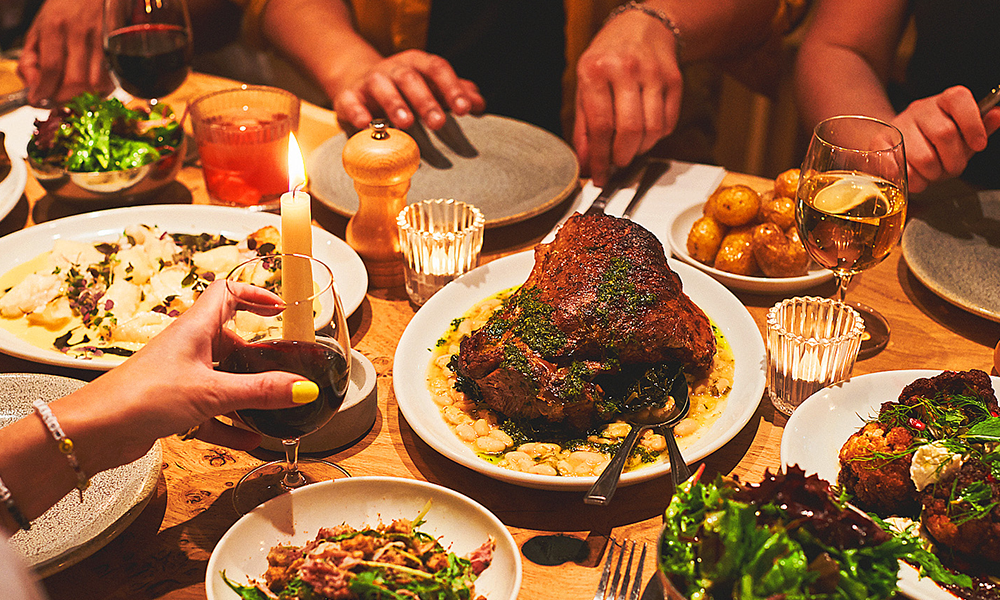
Feasting Menu, £55
Reuters Plaza
Caravan is packed with festive cheer this year with a feasting menu filled with luxurious dishes with a European flavour. It’s a fair bet that there will be some competition round the table when the confit duck leg with braised cavolo nero, white beans and salsa verde makes an appearance. Knives and forks at the ready.
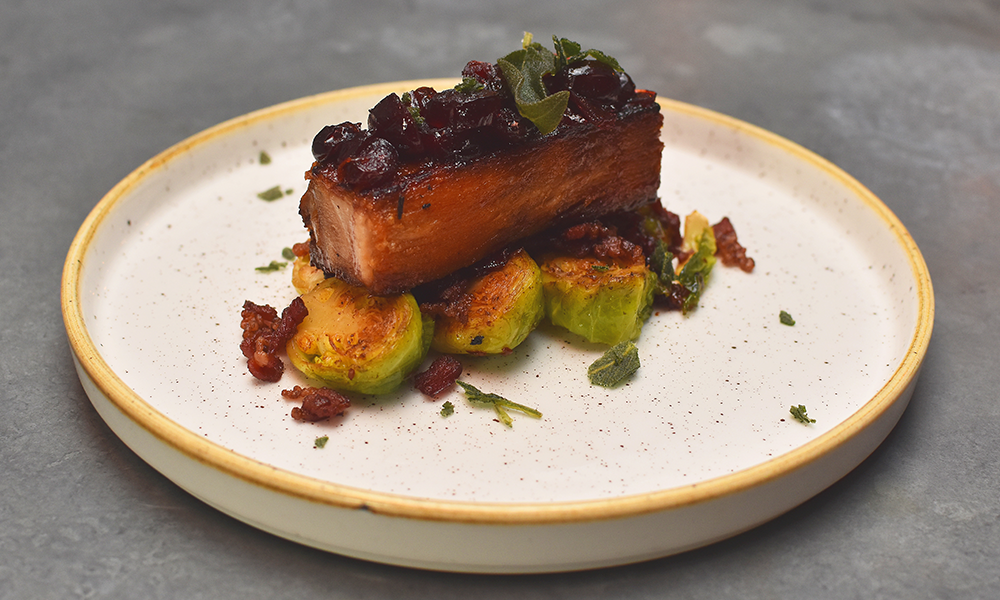
Pork Belly + Sprouts, £13
Mackenzie Walk
Sprouts are proudly star ingredients at Humble Grape with this dish only available at its Canary Wharf restaurant. In addition to the main veg, there’s cranberry sauce and bacon to further lift things. Also on offer during the festive season is a small plate for £8 that brings whipped goats cheese together with crispy sprouts, pickled cranberries and candied chestnuts for a blend of sweet and sour on the tongue.
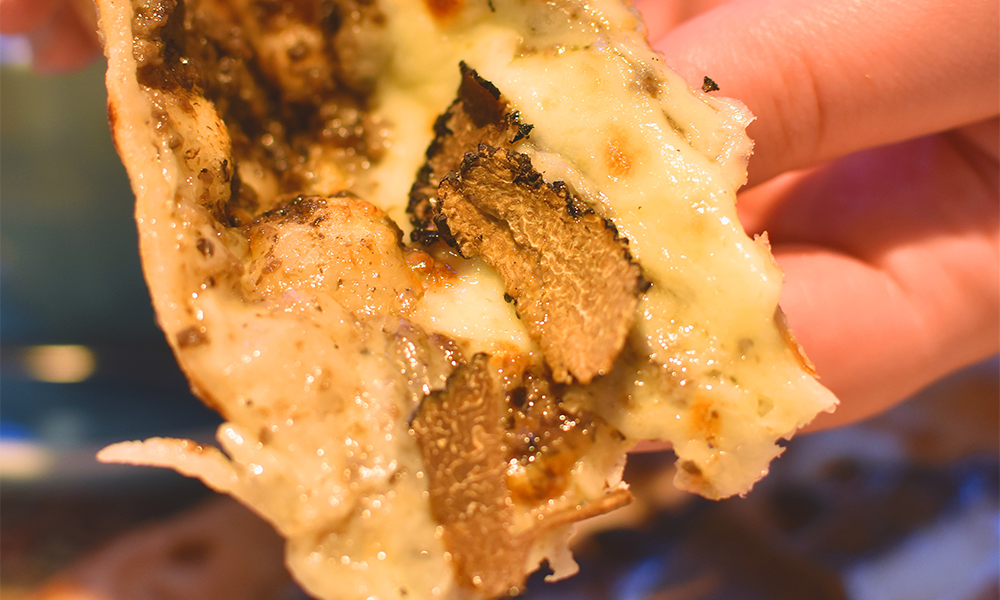
Black Truffle Pizza, £35
Cabot Square
Christmas can be a time of indulgence and having a whole pizza generously coated in fior di latte, mozzarella, truffle paste and shavings of black truffle definitely qualifies. It’s worth noting, though, that Cafe Brera hasn’t become one of the most enduringly successful brands on the Wharf by stinting on ingredients. It also offers a Parma pizza for £15.90 that comes heavily topped with parma ham, san marzano tomato sauce, fior di latte mozzarella, cherry tomatoes, rocket leaves and shards of parmesan. Expect to walk away filled with rich flavours and already planning a return visit.
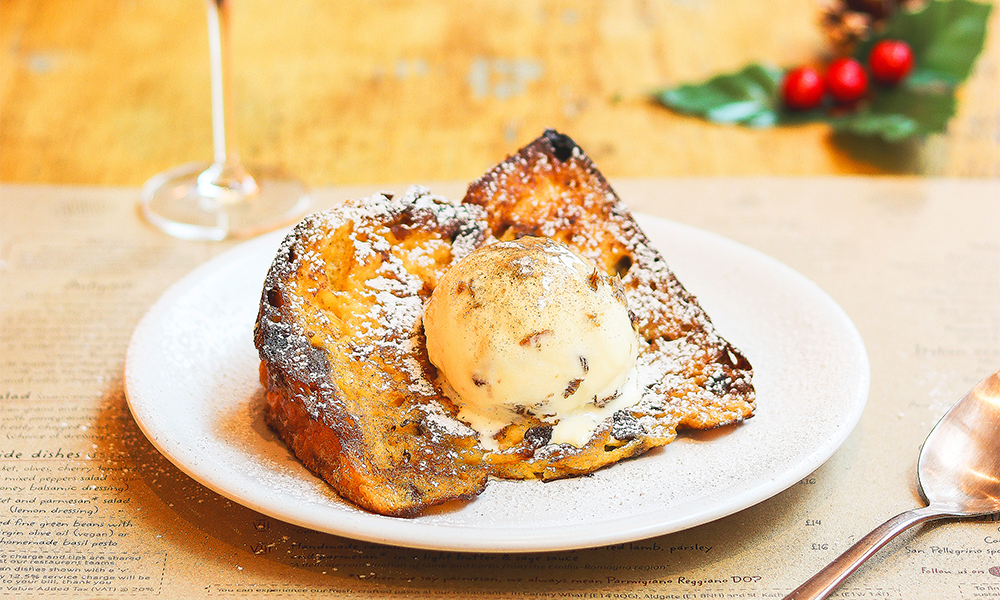
Panettone + Rum And Raisin Gelato, £7.50
George Street
Available throughout December, this rich, sweet dessert features panettone soaked in custard, toasted in butter and served with silky smooth gelato. Finished with spiced sugar, it’s a blend of hot and cold, crisp and fluffy from this popular Italian restaurant that demands a glass of sweet Moscato on the side. The Wood Wharf venue has proved popular since opening its doors, drawing workers and local residents alike with its uncomplicated offering of eight pasta dishes in an unfussy, cosy environment. Diners can expect to pay less than £17 for a bowl, with pasta made fresh on-site each day. There’s also a bar menu to explore.
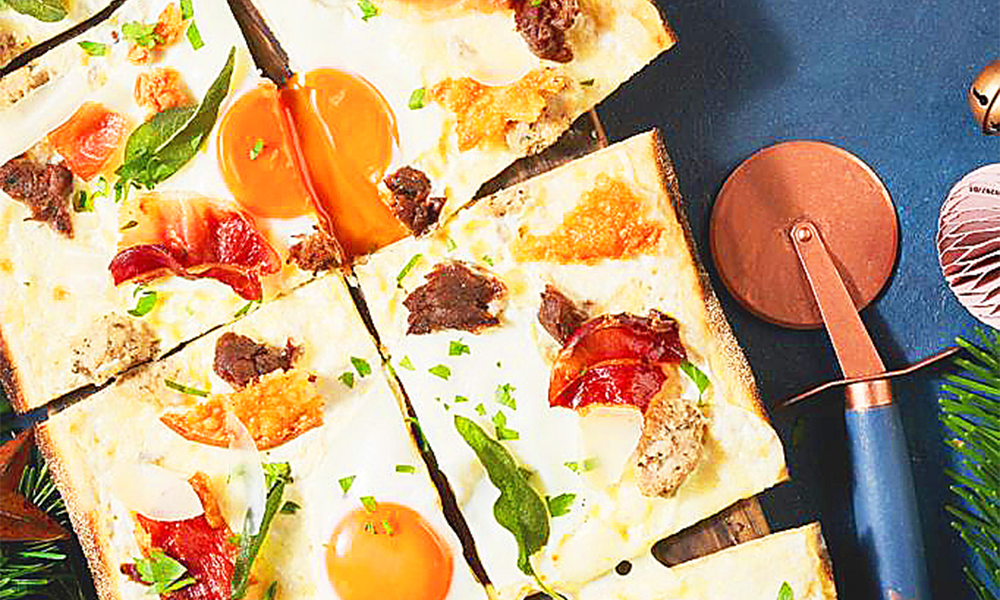
Christmas Menu, £25.95
Cabot Place (Atrium Kitchen)
Customers visiting Zizzi restaurants, including the Canary Wharf branch, can indulge in three courses for under £26 with options including the Festive Formaggio And Prosciutto Pizza, pictured below. Expect meatballs, shiitake mushrooms and free range eggs to arrive on a truffle-infused white base.
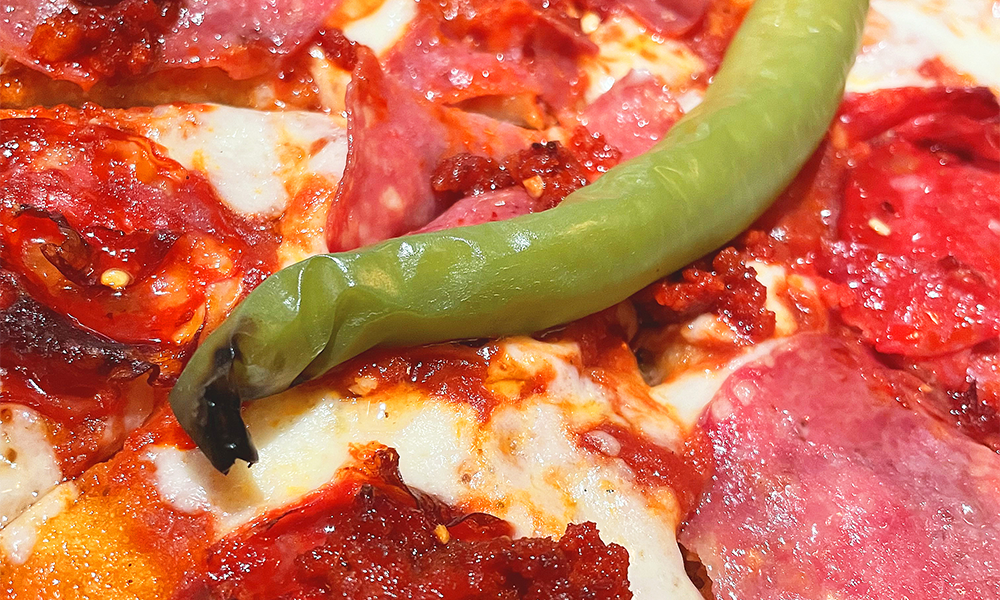
Nduja Mediterranean Pizza, £17.50
Cabot Place (Atrium Kitchen)
There’s something tempting about the copper and turquoise hues of this Med-focused restaurant. Its pizzas eschew the neapolitan sourdough crusts that have become ubiquitous in recent years in favour of a denser base, here topped with honey and soft charcuterie.
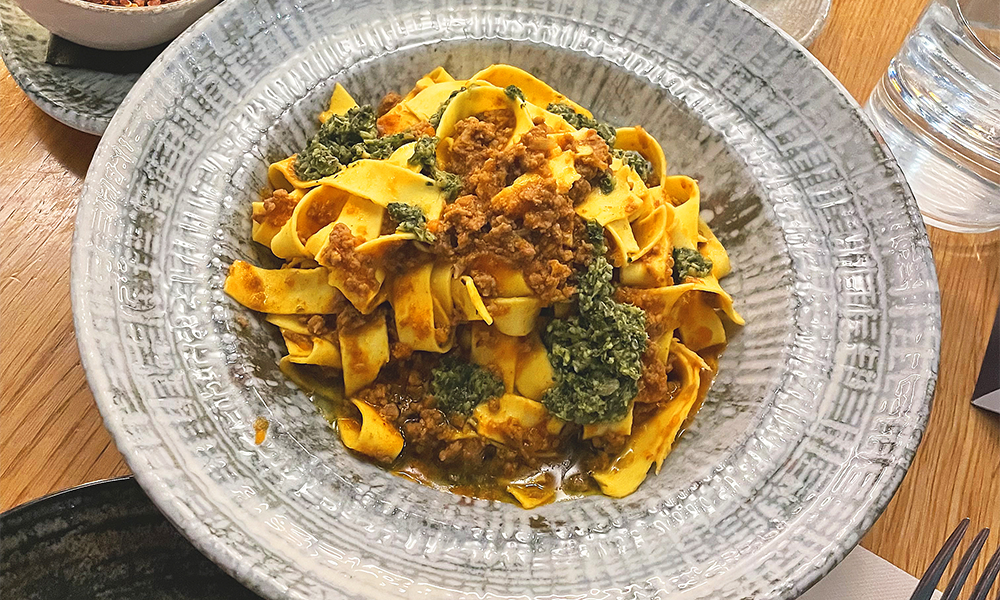
Pappardelle Con Ragu D’Agnello, £20
West Wintergarden
Obica’s festive specials are all about fusion and this dish is no exception, mixing the classic pairing of lamb and mint with thick ribbons of egg pasta. If you fancy an even bigger twist, there’s rolled turkey with prosciutto, smoked mozzarella, sage stuffing, trimmings and gravy. A singular festive creation.
WHEN EAST MEETS WEST
The third strand of the campaign is focused on Asian restaurants, so dig into noodles or a curry and prepare for some serious spice…
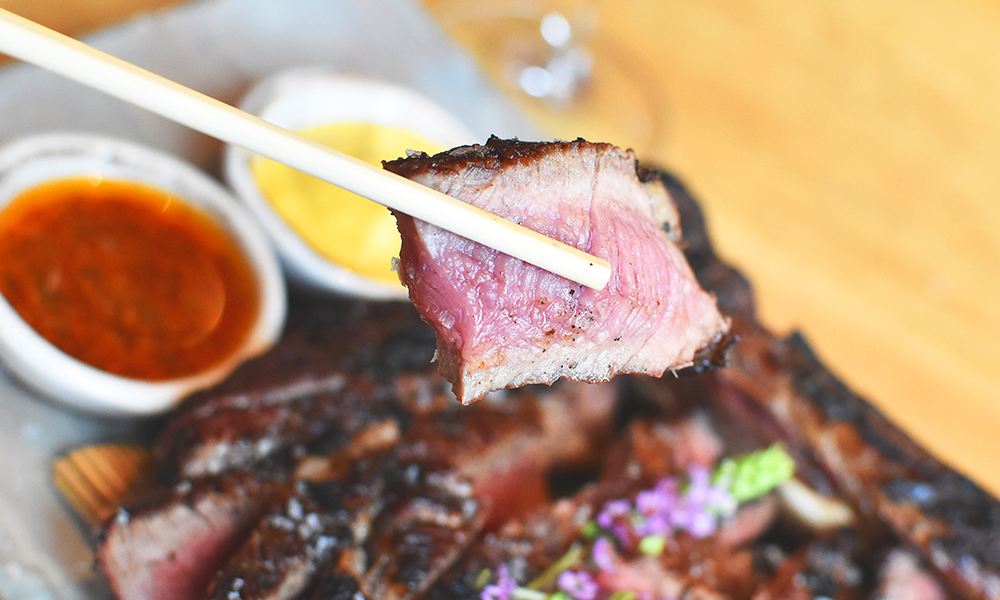
Tomahawk Steak, £130
Park Pavilion, Canada Square
Like this enormous, 1kg cut of flame-grilled steak, there’s no part of Roka that isn’t exceedingly well done. The Japanese sushi and robata restaurant is exquisite, right down to the perfectly irregular ceramics it serves its exacting dishes on. This dish might seem expensive but it will easily do for three or four people prepared to tuck into pink, supple meat and unctuous, partially rendered fat. For extraordinary value, try it as part of Roka’s bottomless brunch for £51.50 per person plus a £33 supplement and indulge its outrageously good, free-flowing sushi before tucking into the beef.
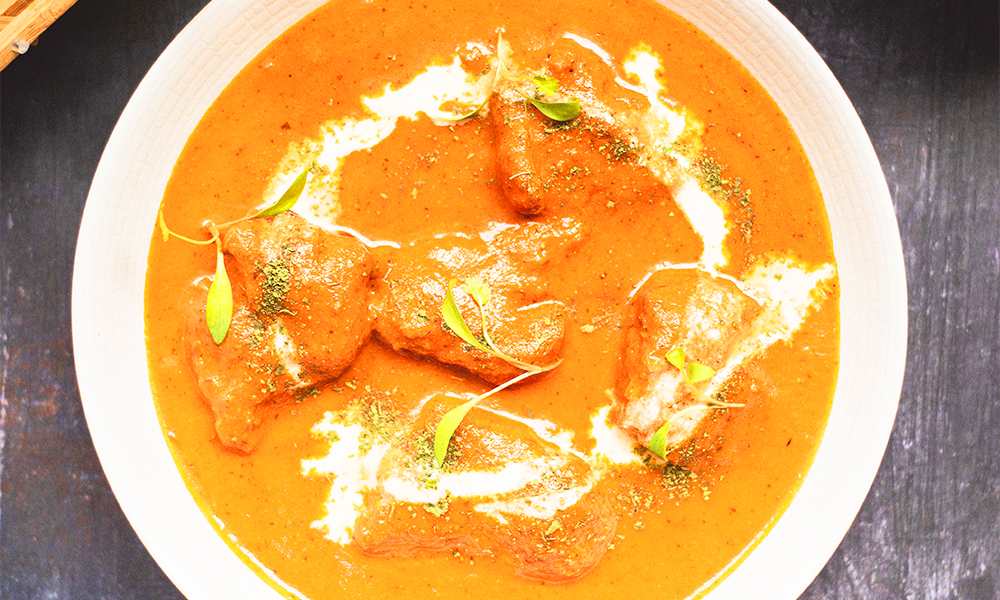
Karol Bagh Butter Chicken, £14.50
Crossrail Place
The rich colour of this dish is a clue to how this blend of tandoor-smoked chicken thigh in a spiced tomato, fenugreek and butter sauce is going to taste. Since the day it opened in Canary Wharf, Chai Ki has stood out from the crowd with its vibrant, flavourful and beautifully presented Indian cooking. Put simply, it’s unafraid to be different and all the better for it. Try this dish with a simple tandoori naan (£2.90).
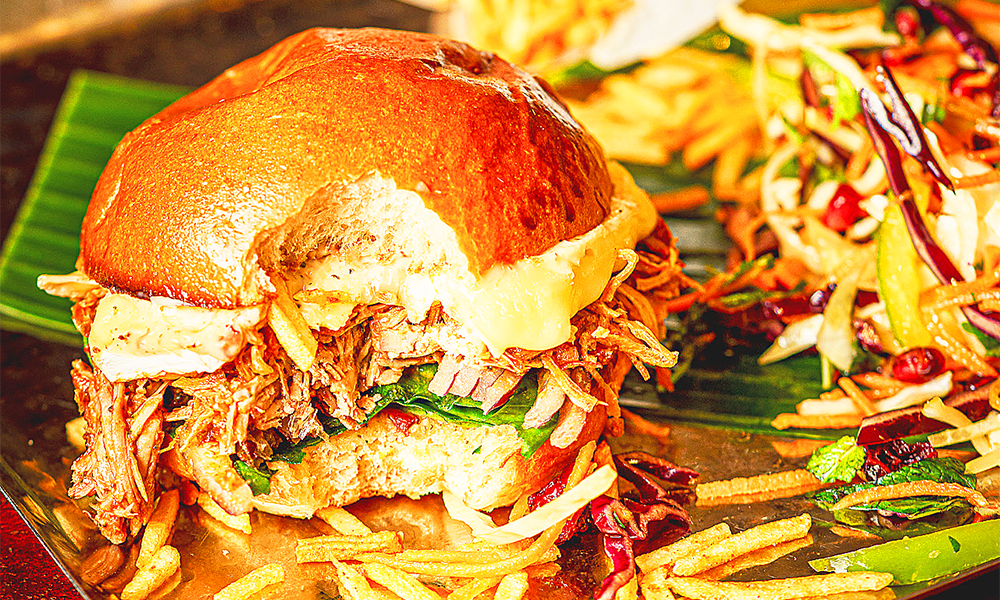
Turkey Raan Bun, £13.90
Water Street, Wood Wharf
How do you find Dishoom? Follow the queue. Those people are waiting outside to get a table for a reason. At this time of year, this dish could well be it. A whole turkey leg is marinated overnight before being prepared in the traditional Indian raan style – cooked slowly over a day until it basically melts. The meat is then gently pulled off the bone and piled into a warm brioche bun. Cranberry mayo, spinach, red onions, crispy onions and a slice of brie are added to finish things off. Best enjoyed with slaw, salli crisp-chips and deep-fried green chillies. Order it with the house black dal for something truly indulgent to dip into…
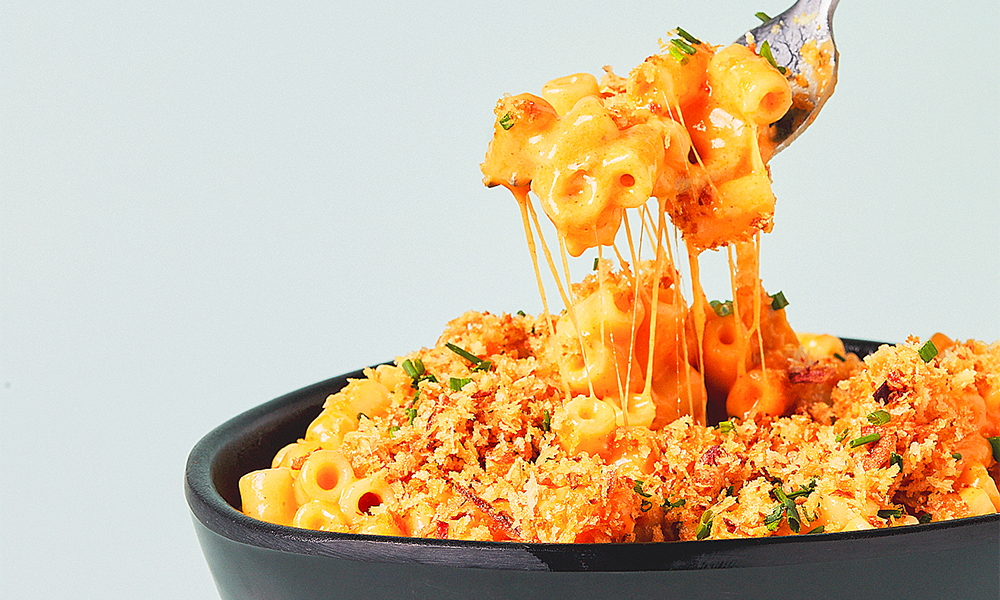
Kimchi Noodle Mac And Cheese, £4.95
Jubilee Place
Seoul Bird founder Judy Joo says: “Kimchi and cheese is a combination that is winning fans all around the world – at first bite you’ll surely swoon and taste why. The tangy and spicy notes of kimchi complement and cut through the creamy richness of the cheese, transforming a traditional combination into a fully balanced, deeply satisfying sensation.” But don’t just take her word for it. Grab a fork and dig in yourselves. It’s £9.50 for a large….

Spicy King Prawn Curry, £13.95
Jubilee Place
Slick and efficient, is the best way to describe a meal at Pho. The chain promises fresh and healthy Vietnamese food and delivers filling, but surprisingly light dishes to order at rapid speed. This punchy curry came served with a ridge of peanuts and a side of “broken rice” that all came together in a beautiful mess of flavours and textures in the mouth. Top tip, add some pickled chillies and garlic.
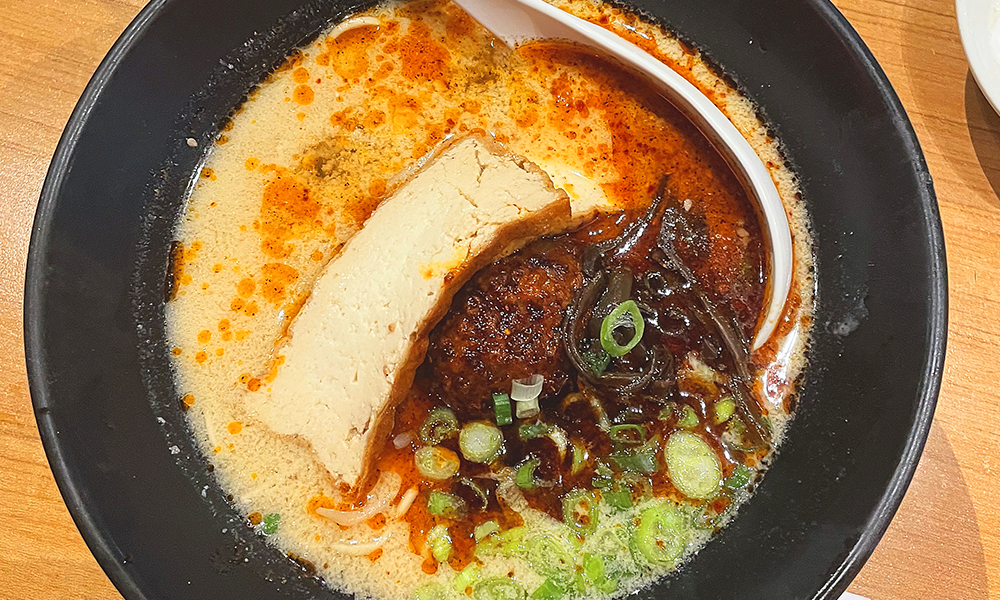
Spicy Veggie Ramen, £15
Crossrail Walk
Wowzer, this is one hot bowl, as sizzling as the late 20th century soundtrack that plays over this evergreen Japanese ramen specialist. Think Footloose, It Wasn’t Me and Under Pressure for the ear worms and thin, glorious noodles soaked in Kakara miso paste, dashi broth and garlic oil on the tongue. There’s serious depth here with plenty of bean sprouts, kikurage mushrooms and fried tofu to top what lies beneath…
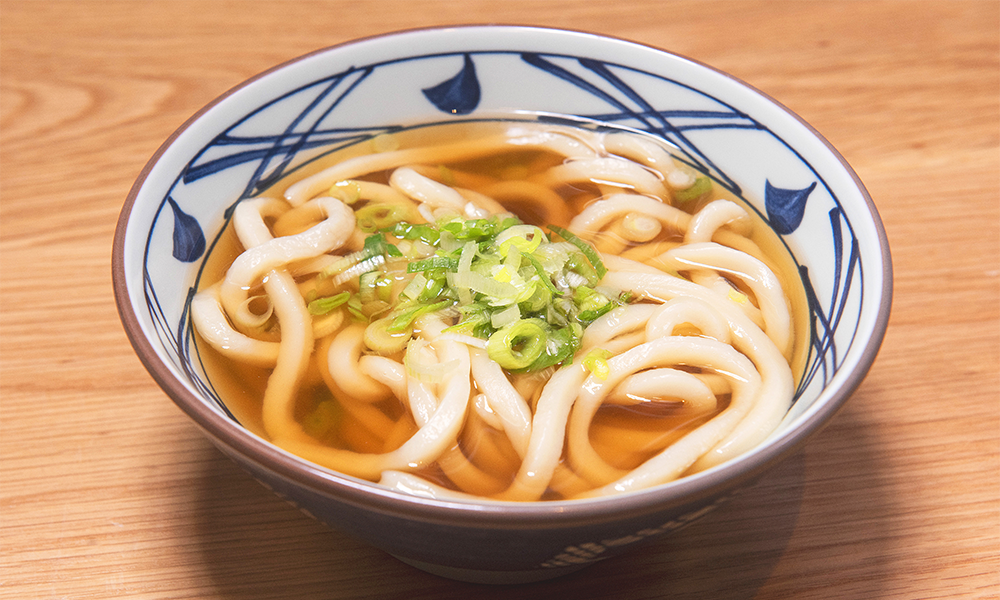
Kake, £4.95
Atrium Kitchen, Cabot Place
Is this umami-packed little bowl of fish dashi and noodles the best value dish in Canary Wharf? At 243 calories (for the small bowl), it’s a warming, simple snack. But in a complicated world there’s a lot to be said for purity, clarity and excellence. This is traditional Japanese comfort food at its best and you’ll still get change from a fiver (at least you would if anyone actually paid in cash any more).
NORTH, SOUTH OR CENTRAL
The fourth strand is North, South Or Central – a grouping that could be subtitled This Is Americas (in homage to Childish Gambino).
Whether it’s the full-on, bombastic cuisine of the USA with burgers and BBQ, the refined cuts of Argentina or the spice of central and South America, there’s plenty to try and experience. Here are a few places to start…
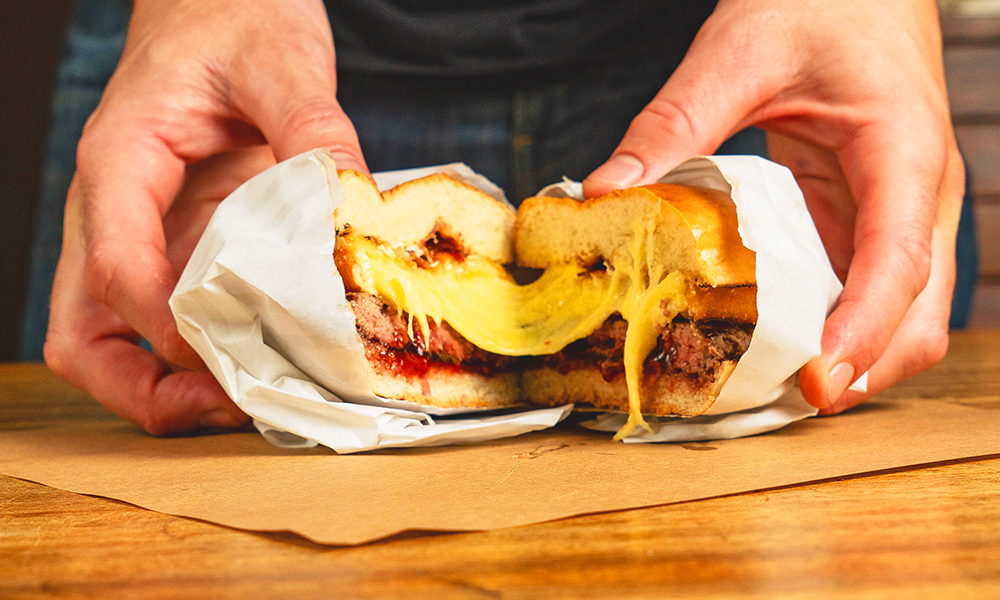
Rebel Without A Claus, £12.95
Park Drive, Wood Wharf
The British burger brand has long looked to the States for its inspiration with offerings named Ari Gold and Smokey Robinson. Little surprise then that this year’s festive burger channels James Dean. It’s a burger built aroung Ogleshield cheese, billed as “the West Country’s answer to Raclette” and promises a pungent, melting partner to the dry-aged beef patty. Italian pancetta and red currant jam are also within to add something of a pigs-in-blankets vibe with just a little sweetness on the side. Eat at a festive celebration with the team or simply on your own with rebellion in your heart.
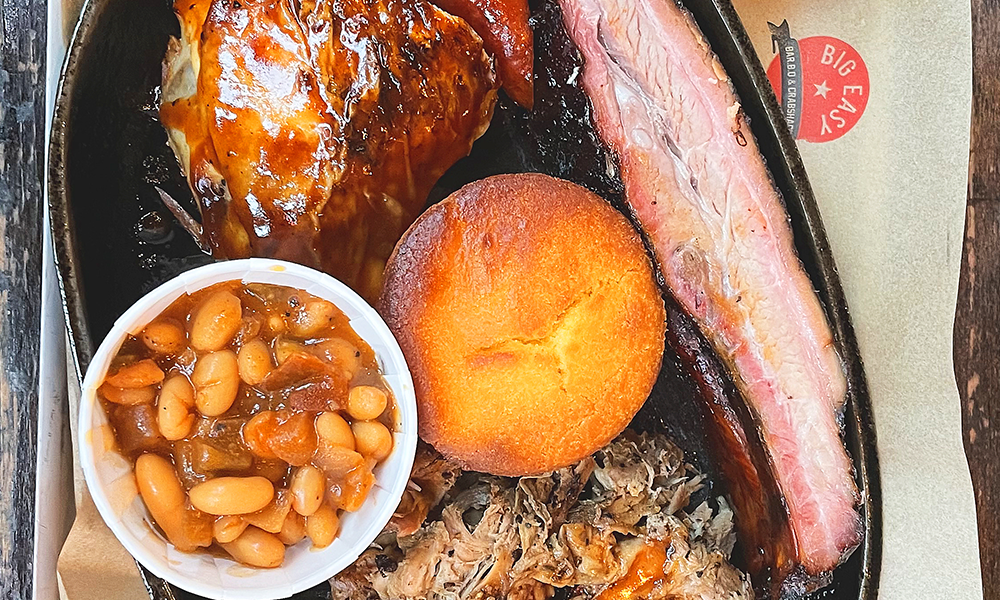
Bar.B.Q Taste-O-Rama, £10 (inc drink)
Crossrail Place
There’s something about the smell of smoke as you walk into Big Easy that, when combined with the strains of raunchy blues guitar, makes you wish you were wearin’ cowboy boots, a plaid shirt and sportin’ a stetson. The food it serves is perfect for those whose heels have bin’ hittin’ the boards, with plentiful portions of home-smoked meats. Go for the venue’s express menu, which includes a beverage such as a half pint of lager, a glass of Prosecco or a soft drink for £10. The Taste-O-Rama is top of the list and acts as a culinary tour of the food on offer. Expect a dish groaning with pulled pork, chicken, Texas hot links, pork rib, Bar.B.Q beans and house slaw with a sweet little cornbread cake at its heart. Rapidly served it’s a good ol’ lunchtime treat.
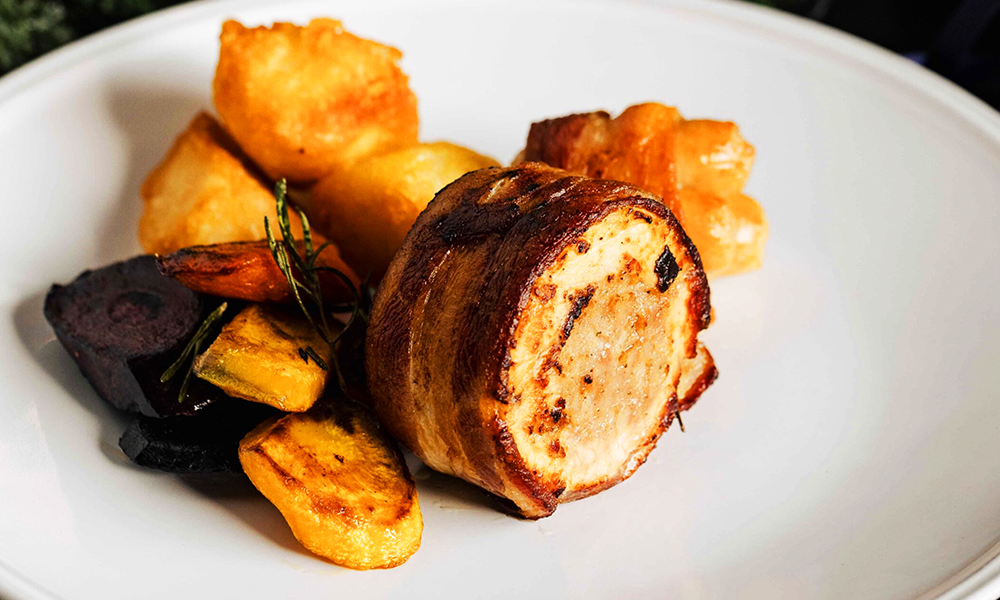
Feast Menu, £85
Canary Riverside
While Gaucho is unequestionably a steak specialist and there’s a fillet and a ribeye on the chain’s seasonal four-course set menu, beef is far from the only attraction. Top billing goes to an Argentinian twist on traditions with the chimichurri butter roasted turkey. There’s also a whole grilled sea bass for fish lovers and a mushroom tagliatelle with truffle oil for those who prefer to avoid meat altogether.
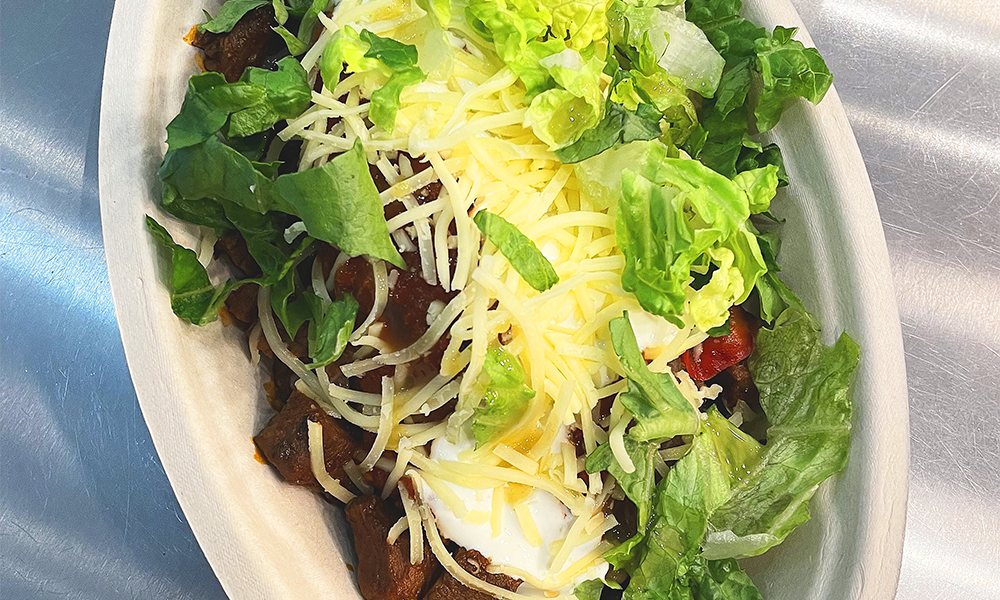
Steak Bowl, £9.25
Jubilee Place
This innocent-looking bowl of burrito ingredients (conceived, presumably for those who insanely prefer to eschew carbs) must not be underestimated. Mention to your server that you like it spicy and they will be more than happy to oblige, dressing the chunky cubes of beef in a sizzling hot sauce that’s enough to warm anyone on a winter’s day. But then what else would you expect from a chain named after a smoked chilli?
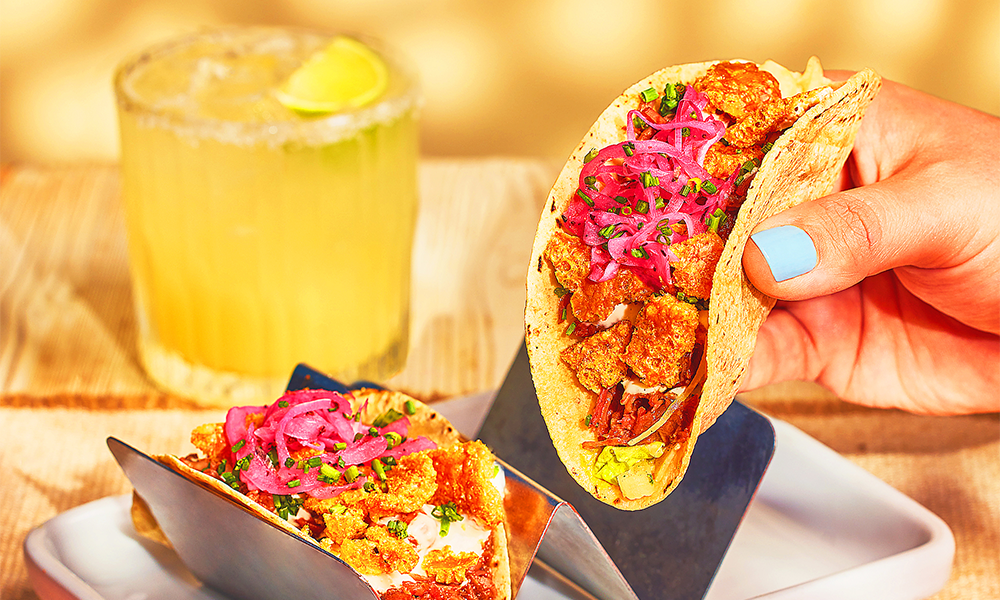
Ham Hock Tacos, £35 (part of set menu)
Park Pavilion, Canada Square
You’ll have to wait until November 22 for these, but just look at them… The brand’s development chef, Leo Da Cruz says: “The Christmas Ham Hock Taco is a dish I’m really excited about. We’ve combined a familiar festive ingredient, with a whole host of flavours and spices inspired by Mexico.
“It’s topped with pink pickled onions and crispy crackling pieces. You can also dig into all these flavours and more in our sharing festive feast.”
This Christmas menu will be available until December 24, 2023, costs £35 per person and is available for parties of six or more. Flavours include the likes of smoky Sonoran hummus, golden roast cauliflower, churros with sprinkles and, of course, ham hock served with a crispy crackling crown.
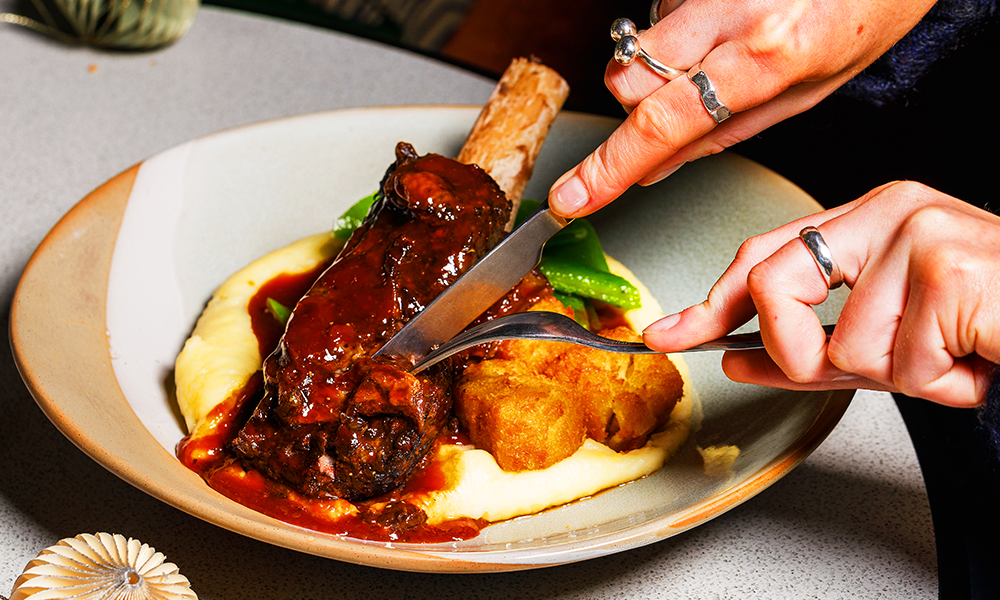
Festive Feast Menu, £49
Water Street, Wood Wharf
Fancy a plate piled high with mashed polenta and lamb shank drizzled with a balsamic vinegar sauce? Then California-inspired restaurant Feels Like June is the place to go. Located on the ground floor of the Tribe London Canary Wharf hotel in Wood Wharf, the venue promises a sunny welcome year-round. For Christmas, it’s offering a three-course set menu available until Christmas Day, featuring the likes of beef tartare, clam chowder and mushroom and truffle arancini to start. Mains include the lamb, a duck breast fillet and a cauliflower steak. For dessert, there’s red velvet cake with hot fudge and chocolate sauce, gingerbread cheesecake with chantilly cream or a spiced chocolate mousse. Feeling festive yet?
Read more: How Level39-based WyzePay offers discounts at MMy Wood Wharf
Read Wharf Life’s e-edition here
Subscribe to our free Wharf Whispers newsletter here
- Jon Massey is co-founder and editorial director of Wharf Life and writes about a wide range of subjects in Canary Wharf, Docklands and east London - contact via jon.massey@wharf-life.com





